-
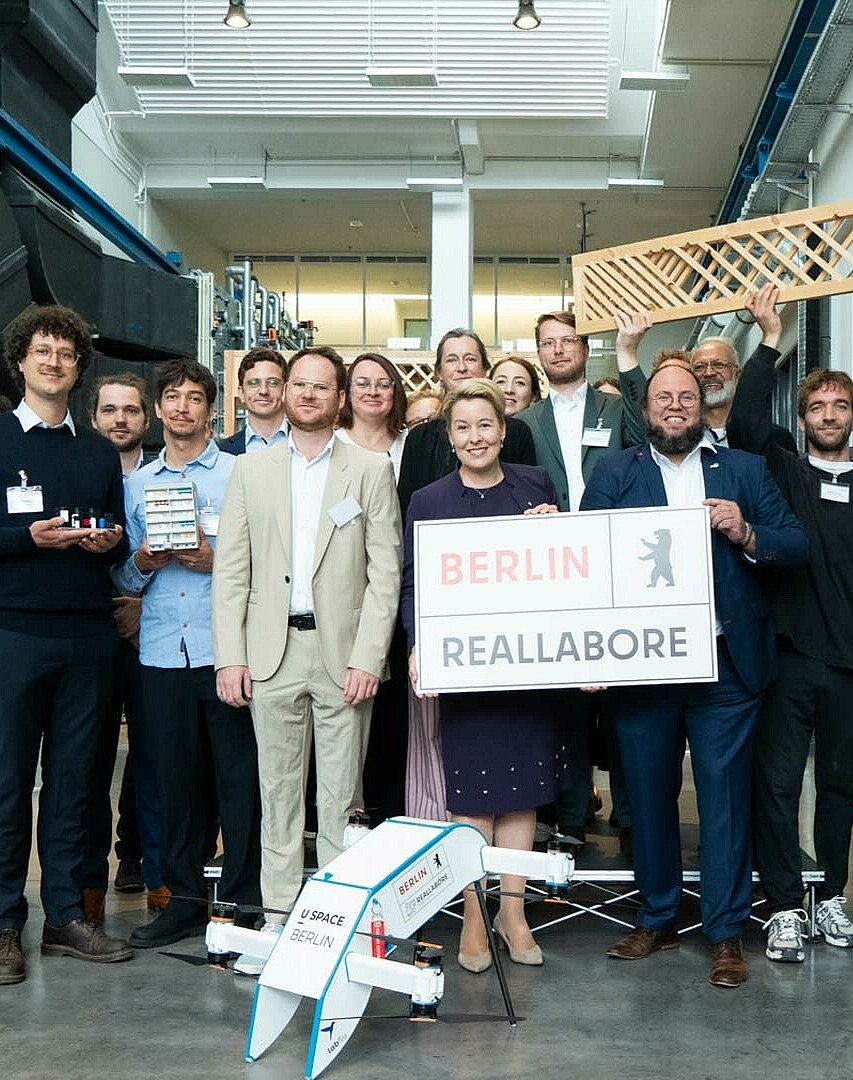
© TU Berlin / allefarben-foto
26.08.2025Three Real-World Laboratories are being Launched in Berlin
Drone logistics, recycling of building material and wastewater reuse: these three ideas are to be tested in so-called “Reallaboren” (Real-World Laboratories) in the coming three years. The Senate Department for Economics, Energy and Public Enterprises is funding the projects in Brain City Berlin with a total of nine million euros. TU Berlin is involved in all three projects and will receive funding of around 3.1 million euros.
The B(e)Ware project focuses on investigating to which extent used building materials such as wooden beams or steel girders can be reused in construction. The IWIQ project, on the other hand, will test if ‘grey water’, which flows away after washing hands, for example can be reused – e.g. for watering gardens. And U-Space Berlin wants to use drones to test the transport of light goods over the so-called ‘last mile’ in urban areas, for example for the delivery of medicines. All three projects are about making real improvements to people's everyday lives through innovation. The Senate Department for Economics, Energy and Public Enterprises is now giving them a total of nine million euros over the next three years to test their ideas in ‘real-world labs’ in everyday life. The Technische Universität Berlin (TU Berlin) will receive around 3.1 million euros of this funding, as it is involved in all three laboratories as a project partner. Ut is also managing the ‘B(e)Ware’ project.
The funding is being provided as part of a competition launched by the Senate Department in October 2023. Fifty-six projects applied, and ten were selected for a six-month concept phase in which they could refine and develop their ideas. ‘With the three selected real-world laboratories, we are promoting innovations made in Berlin – from the idea to the application. IWIQ, B(e)Ware and U-Space Berlin are developing solutions that will be used in everyday life and make a direct contribution to greater sustainability and quality of life,’ said Senator for Economic Affairs Franziska Giffey. She emphasised that Berlin has enormous potential for creative, innovative solutions from science and industry.
The aim of the competition is to make the applications economically viable at the end of the three years. Real-world laboratories are an important link in the transfer between research and industry. They bring science, businesses and citizens together to test innovative solutions directly in practice. They are also intended to show how research can be quickly transferred into everyday life. TU President Prof. Dr. Geraldine Rauch also stressed the importance of the projects for the city: ‘Each of these real-world laboratories opens up new opportunities for Berlin for a sustainable future,’ she said.
The use of real-world laboratories is also part of TU Berlin's research strategy. The university has bundled more than 25 projects on the ‘StadtManufaktur’ platform. (vdo)
The three funded real-world laboratories
B(e)Ware – radical rethinking in the construction sector
The B(e)Ware project aims to test planning and construction processes involving reusable building materials. In the real-world laboratory, local, used building materials such as wooden beams and steel girders are to be returned to the value chain in the construction sector as supporting structures. The concept is being implemented for the first time in three Berlin construction projects: the TULIUM exhibition pavilion on the Charlottenburg campus of the Technische Universität Berlin, a water rescue station on Lake Müggelsee, and a workshop building for the Deutsche Stiftung Denkmalschutz’s (German Foundation for Monument Protection's) youth building workshop.
Project partners: Natural Building Lab at the TU Berlin (network coordination), ZRS Architekten und Ingenieure GvA mbH, associated partners from the fields of e.g., materials testing, logistics, demolition, construction products.
IWIQ – Reducing drinking water consumption by up to 60 per cent
The IWIQ project aims to contribute to a future-proof water supply and heat transition. In the real-world laboratory, the recycling of grey water (slightly polluted wastewater, e.g. after showering, washing hands or machine washing) from households with simultaneous heat recovery is to be implemented for the first time in existing buildings. To this end, detailed 3D models of buildings in Berlin are being created to enable pipe and system planning – because a completely new water cycle must be installed.
Project partners: Kompetenzzentrum Wasser Berlin gGmbH (network coordination), Nolde – innovative Wasserkonzepte GmbH, TU Berlin, Contecht GmbH, Howoge Wohnungsbaugesellschaft mbH, Erste Wohnungsgenossenschaft Pankow eG, Helmholtz Zentrum Berlin , Magda GmbH, inter 3 GmbH Institute for Resource Management
U-Space Berlin – delivery drones in Berlin for the first time
The U-Space Berlin project aims to test an efficient last-mile logistics solution using drones in the Tempelhof-Schöneberg district. The planned practical demonstrations include the transport of medical materials between a hospital and external facilities and the delivery of goods to a decentralised industrial park. The aim of the real-world laboratory is to develop scalable and data-based business models in urban areas for the integration of drones into logistics and transport concepts.
Project partners: Startup Colors UG/Applied Data Incubator (network coordination), TU Berlin, DiAvEn Labfly UG, marktschwalbe GmbH, Murzilli Consulting / M&K Germany GmbH, Akkon Hochschule Johanniter University of Applied Sciences
-
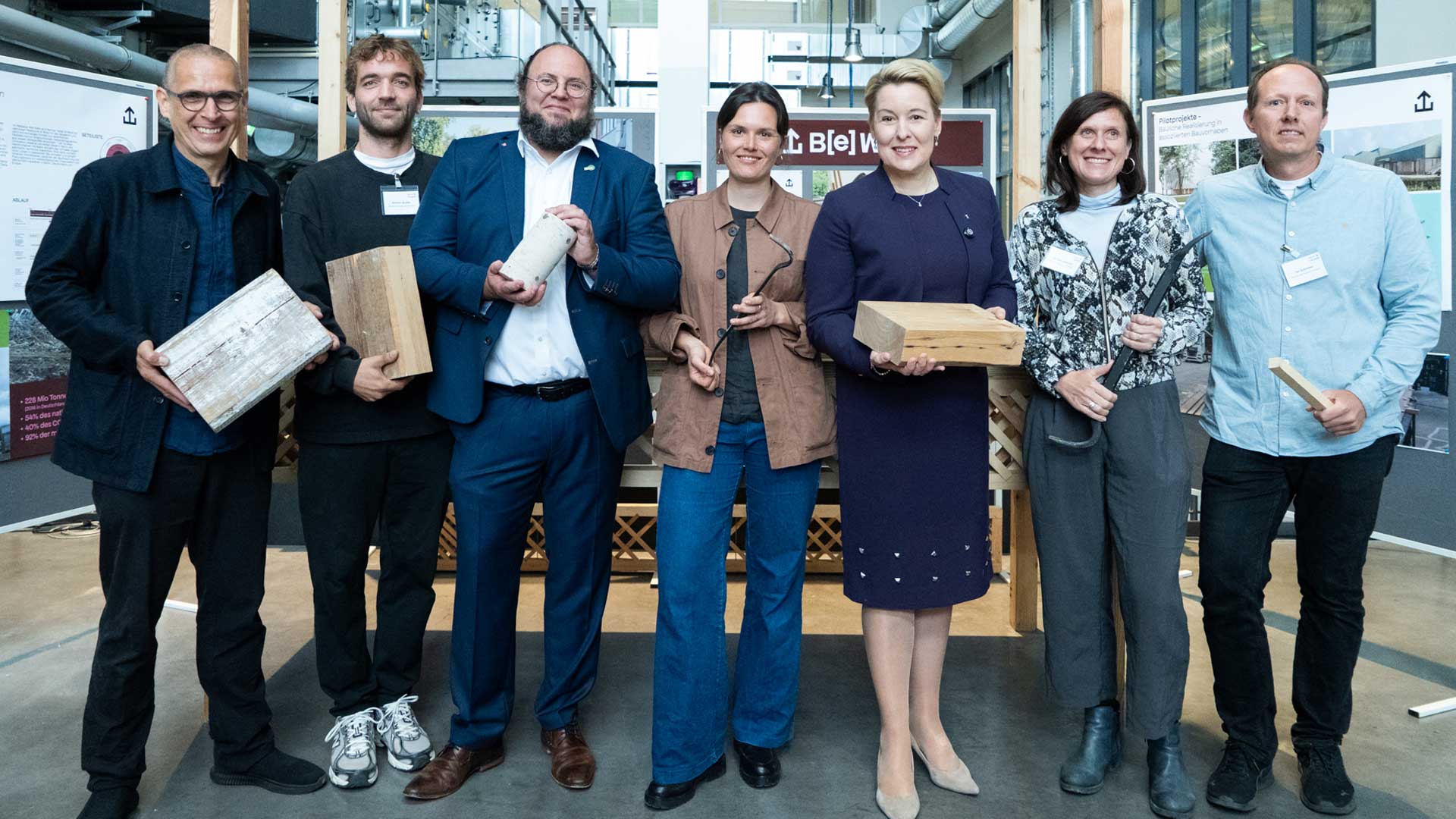 © TU Berlin / allefarben-foto
© TU Berlin / allefarben-foto
Testing the reuse of building materials: Franziska Giffey with partners from the real-world laboratory ‘B(e)Ware – radical rethinking in the construction sector’ -
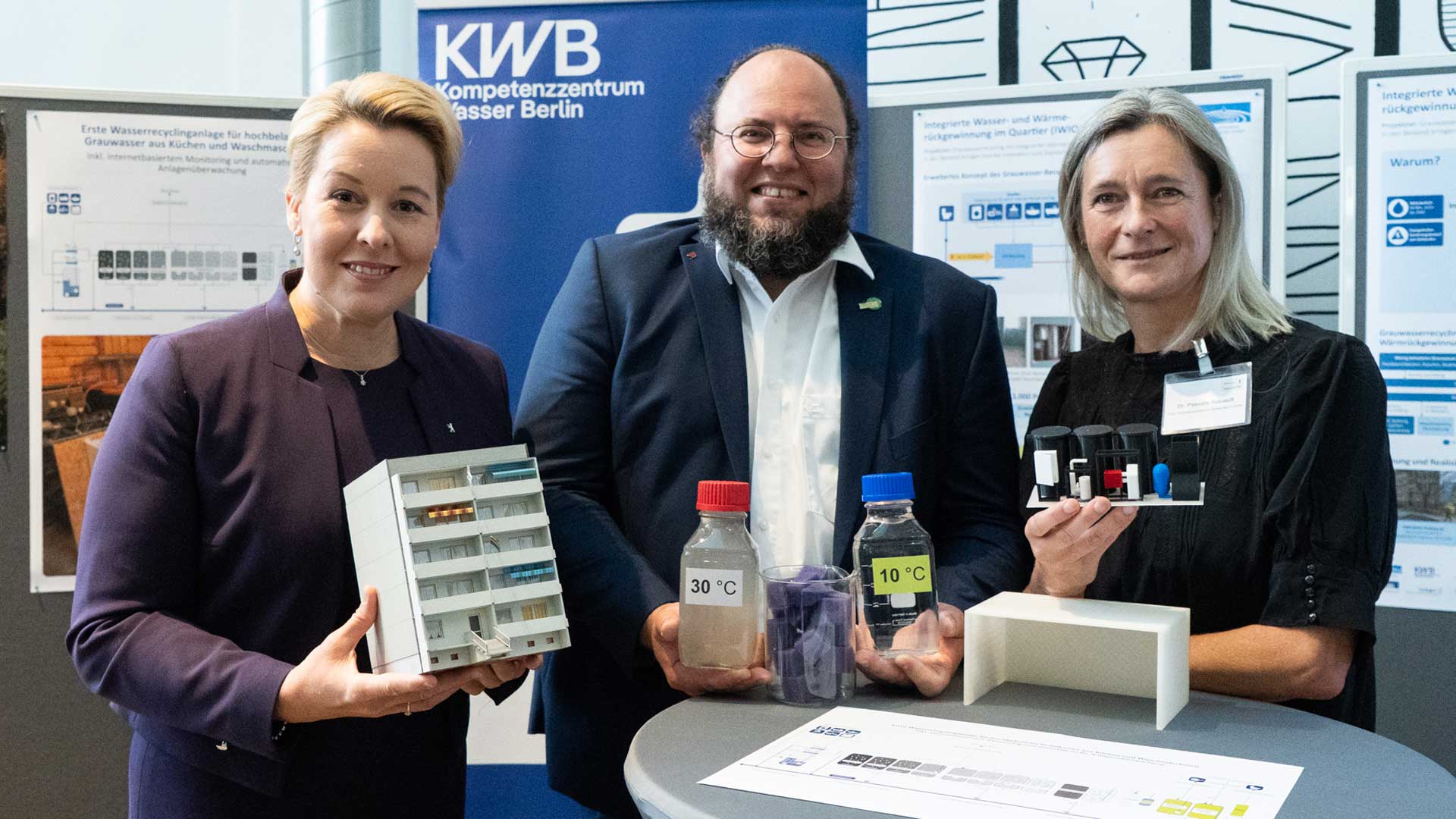 © TU Berlin / allefarben-foto
© TU Berlin / allefarben-foto
Recovery of water and heat: Franziska Giffey with partners from the real-world laboratory ‘IWIQ – Reducing drinking water consumption by up to 60 per cent’ -
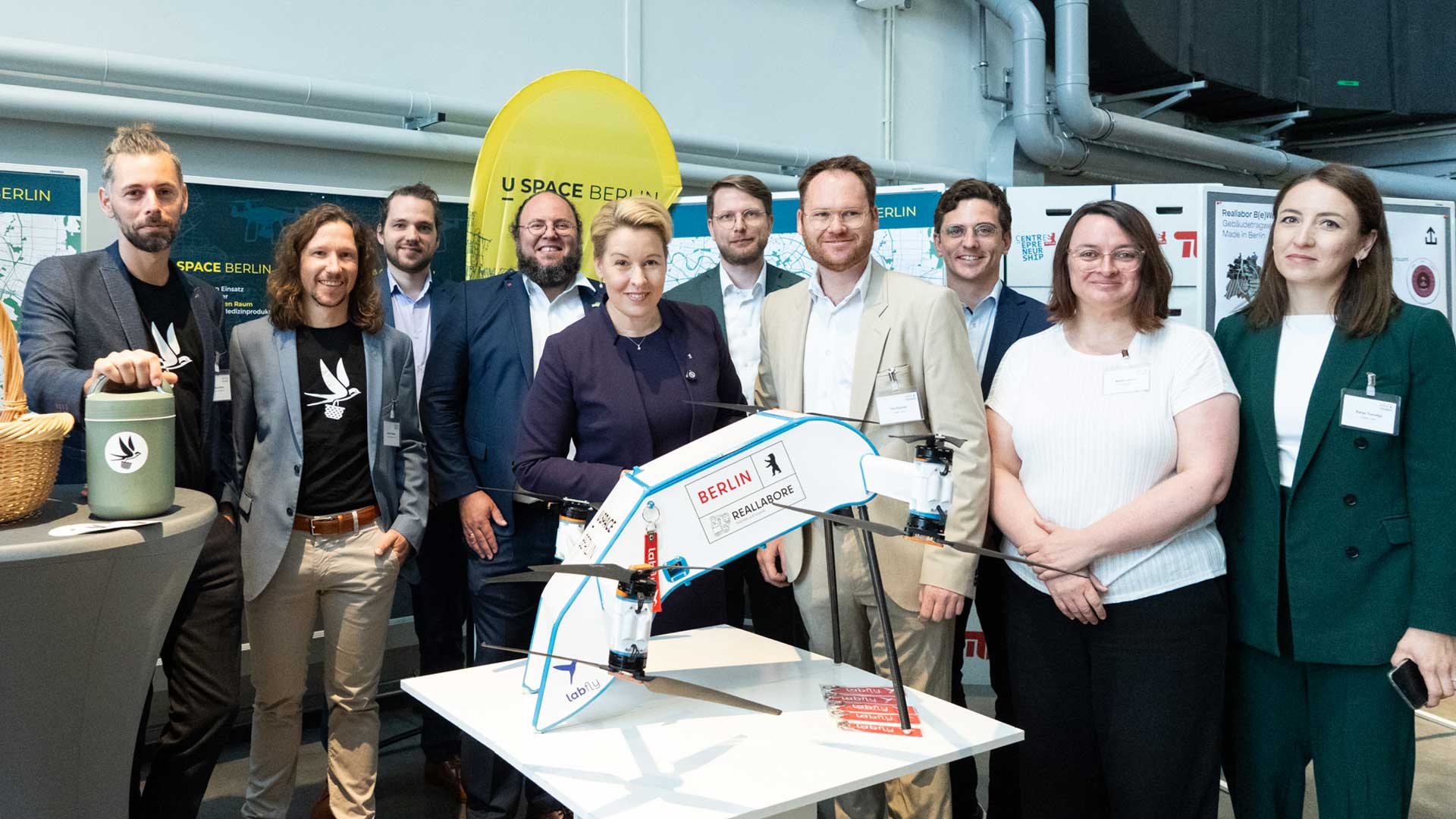 © TU Berlin / allefarben-foto
© TU Berlin / allefarben-foto
Inner-city transport with drones: Franziska Giffey with partners from the real-world laboratory ‘U-Space Berlin – delivery drones in Berlin for the first time’
More Stories
-
Startup Facts & Events
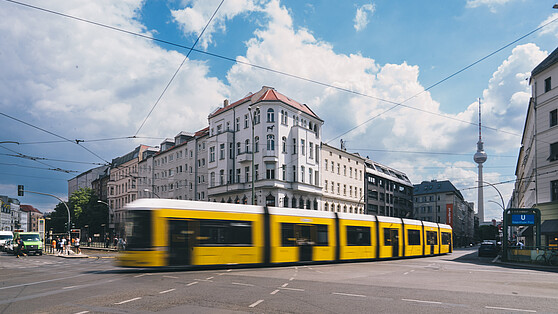 © Berlin Partner - eventfotografen.berlin
Startup Facts & EventsExcellence meets entrepreneurial spirit: Science & Startups strengthens Berlin’s position in Europe.→
© Berlin Partner - eventfotografen.berlin
Startup Facts & EventsExcellence meets entrepreneurial spirit: Science & Startups strengthens Berlin’s position in Europe.→Excellence meets entrepreneurial spirit: Science & Startups strengthens Berlin’s position in Europe
-
Facts & Events
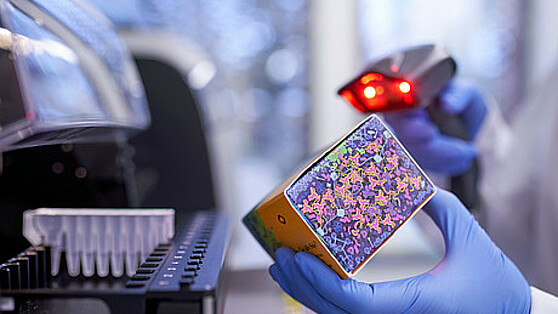 © Charité | Arne Sattler
Facts & EventsAccelerating medical innovation: New ARC Center bundles expertise.→
© Charité | Arne Sattler
Facts & EventsAccelerating medical innovation: New ARC Center bundles expertise.→Accelerating medical innovation: New ARC Center bundles expertise
-
Talent Facts & Events
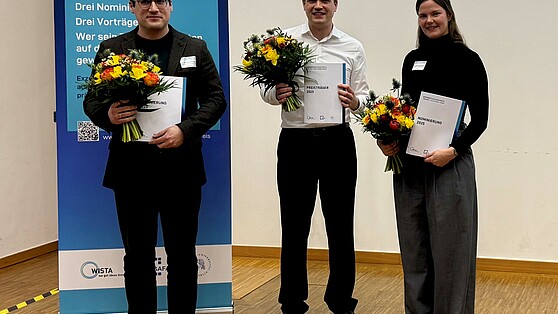 © WISTA Management GmbH
Talent Facts & EventsAdlershof Dissertation Award 2025 goes to early-career researcher Dr Sascha Robert Gaudlitz.→
© WISTA Management GmbH
Talent Facts & EventsAdlershof Dissertation Award 2025 goes to early-career researcher Dr Sascha Robert Gaudlitz.→Adlershof Dissertation Award 2025 goes to early-career researcher Dr Sascha Robert Gaudlitz
-
Facts & Events
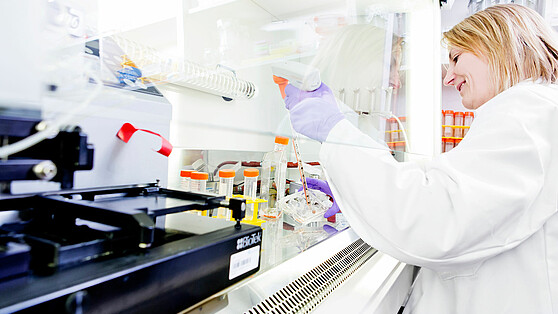 © Berlin Partner. Copyright: Wüstenhagen
Facts & EventsWorld Cancer Day 2026: How research from Berlin is strengthening women’s health.→
© Berlin Partner. Copyright: Wüstenhagen
Facts & EventsWorld Cancer Day 2026: How research from Berlin is strengthening women’s health.→World Cancer Day 2026: How research from Berlin is strengthening women’s health
-
Facts & Events
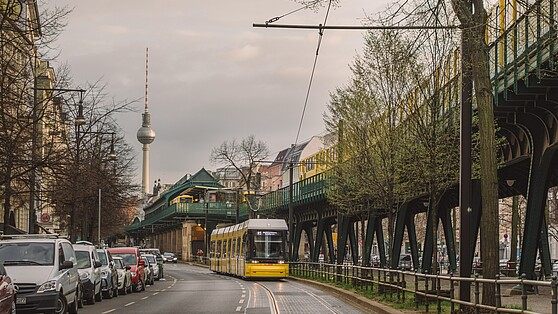 Image by Fionn Grosse via Unsplash
Facts & EventsUrban Development Congress 2026: What visions are shaping the cities of tomorrow?→
Image by Fionn Grosse via Unsplash
Facts & EventsUrban Development Congress 2026: What visions are shaping the cities of tomorrow?→Urban Development Congress 2026: What visions are shaping the cities of tomorrow?
-
Facts & Events
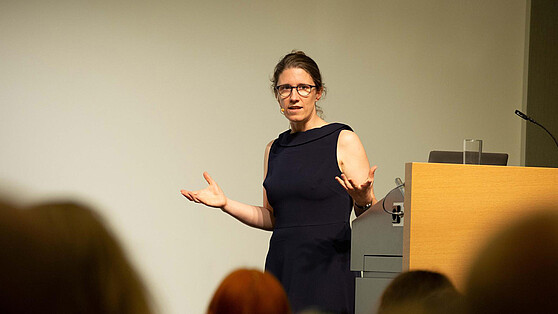 © Christop Sapp (denXte)
Facts & EventsProf. Dr. Barbara Vetter from the FU Berlin and Prof. Dr. Klaus-Robert Müller from the TU Berlin receive Germany's most prestigious research funding…→
© Christop Sapp (denXte)
Facts & EventsProf. Dr. Barbara Vetter from the FU Berlin and Prof. Dr. Klaus-Robert Müller from the TU Berlin receive Germany's most prestigious research funding…→Leibniz Prizes for Philosopher and Computer Scientist from Berlin
-
Facts & Events Transfer – Stories
 © Agentur Medienlabor / Stefan Schubert
Facts & Events Transfer – StoriesFive companies from the capital region were honoured for their visionary ideas and products, and another received a special award.→
© Agentur Medienlabor / Stefan Schubert
Facts & Events Transfer – StoriesFive companies from the capital region were honoured for their visionary ideas and products, and another received a special award.→Berlin Brandenburg Innovation Award 2025 – The Winners
-
Facts & Events
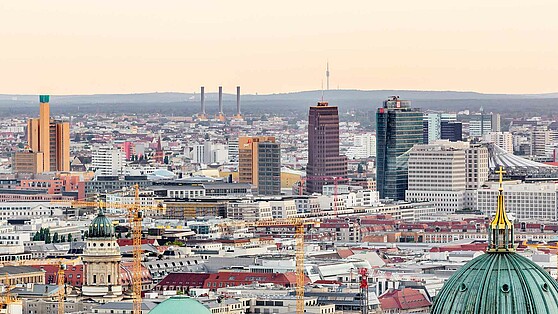 © Berlin Partner / Wüstenhagen
Facts & EventsFrom 24 to 28 November 2025, cooperation between science and industry will once again be the focus of Transfer Week Berlin-Brandenburg.→
© Berlin Partner / Wüstenhagen
Facts & EventsFrom 24 to 28 November 2025, cooperation between science and industry will once again be the focus of Transfer Week Berlin-Brandenburg.→Transfer Week Berlin-Brandenburg 2025
-
Facts & Events
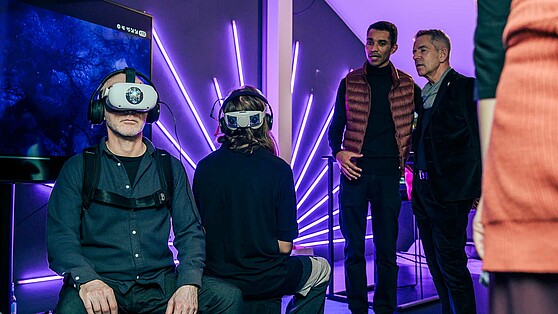 © Berlin Partner / Elvina Kulinicenko
Facts & EventsIn October/November, construction began on three prominent research buildings in Berlin, and another was officially opened. Here’s an overview.→
© Berlin Partner / Elvina Kulinicenko
Facts & EventsIn October/November, construction began on three prominent research buildings in Berlin, and another was officially opened. Here’s an overview.→Showcases, Hubs and Innovation Platforms: What’s new in Brain City Berlin?
-
Facts & Events
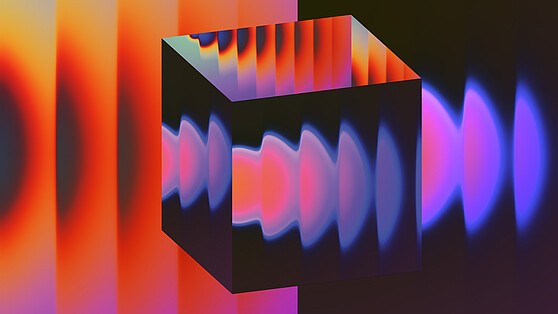 Berlin Science Week 2025 © Design: Bjoern Wolf / Graphic: Martin Naumann
Facts & EventsFrom 1 to 10 November, Berlin Science Week once again invites you to explore Brain City Berlin. This year’s motto “BEYOND NOW”.→
Berlin Science Week 2025 © Design: Bjoern Wolf / Graphic: Martin Naumann
Facts & EventsFrom 1 to 10 November, Berlin Science Week once again invites you to explore Brain City Berlin. This year’s motto “BEYOND NOW”.→Opening new perspectives: Berlin Science Week 2025
-
Facts & Events
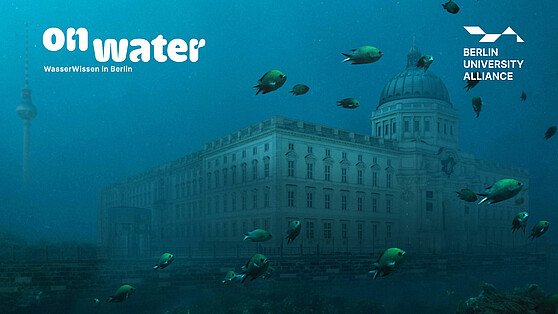 © Berlin University Alliance
Facts & EventsStarting October 10, 2025, the exhibition “On Water. WasserWissen in Berlin” at the Humboldt Laboratory will present entirely new perspectives on the…→
© Berlin University Alliance
Facts & EventsStarting October 10, 2025, the exhibition “On Water. WasserWissen in Berlin” at the Humboldt Laboratory will present entirely new perspectives on the…→“On Water”: Rethinking Water
-
Facts & Events Transfer – Stories
 © Christian Kielmann
Facts & Events Transfer – StoriesEurope’s largest laboratory infrastructure for transfer teams in the field of Green Chemistry is being built on the campus of TU Berlin. The “Chemical…→
© Christian Kielmann
Facts & Events Transfer – StoriesEurope’s largest laboratory infrastructure for transfer teams in the field of Green Chemistry is being built on the campus of TU Berlin. The “Chemical…→Construction Kick-off: „Chemical Invention Factory“
-
Insights Facts & Events
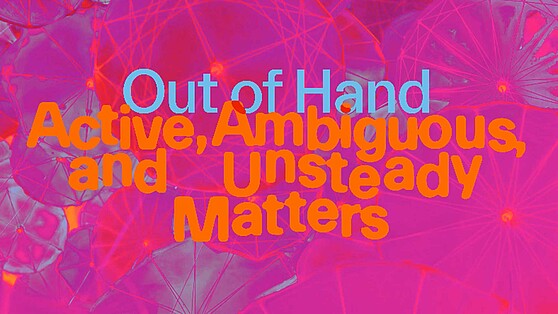 © Matters of Activity / HU Berlin
Insights Facts & EventsOn 19 September, the Cluster of Excellence ‘Matters of Activity’ will hold its final annual conference. Brain City interview with Dr Christian Stein.→
© Matters of Activity / HU Berlin
Insights Facts & EventsOn 19 September, the Cluster of Excellence ‘Matters of Activity’ will hold its final annual conference. Brain City interview with Dr Christian Stein.→“We bring the material to eye level”
-
Facts & Events
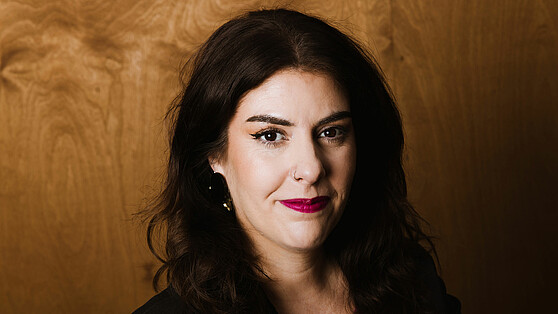 © Graziela Diez
Facts & EventsWith her project "Data Worker's Inquiry", the Berlin-based sociologist and computer scientist draws attention to exploitative conditions in AI labour.…→
© Graziela Diez
Facts & EventsWith her project "Data Worker's Inquiry", the Berlin-based sociologist and computer scientist draws attention to exploitative conditions in AI labour.…→Dr. Milagros Miceli Named to TIME 100 List of the Most Influential People in AI
-
Facts & Events
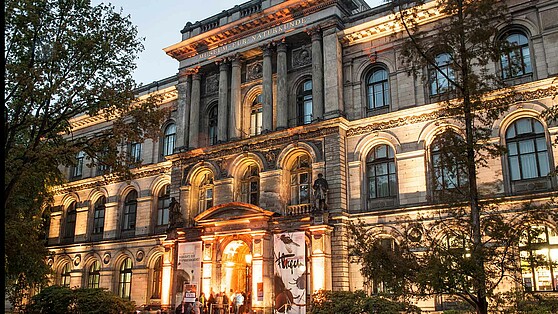 © mfn / Carola Radke
Facts & EventsOn 6 October, the mit:forschen! team invites you to the first Campus Citizen Science event at the Museum für Naturkunde Berlin.→
© mfn / Carola Radke
Facts & EventsOn 6 October, the mit:forschen! team invites you to the first Campus Citizen Science event at the Museum für Naturkunde Berlin.→Campus Citizen Science: Artificial Intelligence
-
Facts & Events Transfer – Stories
 © Stefan Klenke / HU Berlin
Facts & Events Transfer – StoriesBerlin-based battery researcher Prof. Dr. Philipp Adelhelm has been awarded the 2024 Berlin Science Award. Prof. Dr. Inka Mai from TU Berlin received…→
© Stefan Klenke / HU Berlin
Facts & Events Transfer – StoriesBerlin-based battery researcher Prof. Dr. Philipp Adelhelm has been awarded the 2024 Berlin Science Award. Prof. Dr. Inka Mai from TU Berlin received…→Prof. Dr. Philipp Adelhelm honored with Berlin Science Award
-
Insights Facts & Events
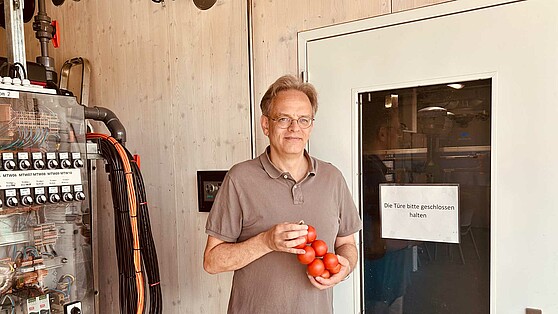 © Ernestine von der Osten-Sacken
Insights Facts & EventsIt's all about future food production: in the CUBES Circle project, scientists are researching how established agricultural production systems can be…→
© Ernestine von der Osten-Sacken
Insights Facts & EventsIt's all about future food production: in the CUBES Circle project, scientists are researching how established agricultural production systems can be…→Tomatoes and fish in a zero-waste cycle
-
Facts & Events
![© BHT / Simone M. Neumann [Translate to en:] Humanoider Roboter vor einer Tafel mit geometrischen Elementen](/fileadmin/_processed_/0/0/csm_1920x1080_Labor_Humanoide_Robotik_c_Simone-M-Neumann_BHT_cc88f10dd5.jpg) © BHT / Simone M. Neumann
Facts & EventsHere are three exciting updates where our Brain City Ambassadors play a key role.→
© BHT / Simone M. Neumann
Facts & EventsHere are three exciting updates where our Brain City Ambassadors play a key role.→UNITE is on its way - and some more news
-
Facts & Events
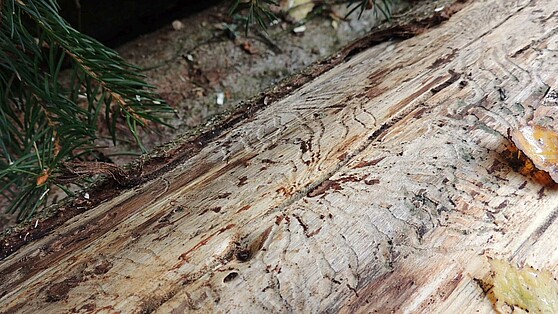 © Pelin Asa, Matters of Activity / Max Planck Institute of Colloids and Interfaces
Facts & EventsThe exhibitions “Symbiotic Wood” and “Swamp Things!” by the Cluster of Excellence “Matters of Activity” look at beetle damage, fungal infestation and…→
© Pelin Asa, Matters of Activity / Max Planck Institute of Colloids and Interfaces
Facts & EventsThe exhibitions “Symbiotic Wood” and “Swamp Things!” by the Cluster of Excellence “Matters of Activity” look at beetle damage, fungal infestation and…→Inspired by beetles and moorland plants
-
Facts & Events
![© LNDW [Translate to en:] Motiv LNDW 2025, Brain City Berlin](/fileadmin/_processed_/6/5/csm_1920x1080_lndw25_neutral-2_c79195d6c2.jpg) © LNDW
Facts & EventsThe LNDW is celebrating its anniversary this year. The programme includes more than 1,000 events. Tickets are available at a special anniversary…→
© LNDW
Facts & EventsThe LNDW is celebrating its anniversary this year. The programme includes more than 1,000 events. Tickets are available at a special anniversary…→25 years of Long Night of Science
-
Insights Transfer – Stories
 © Gorodenkoff / Shutterstock.com
Insights Transfer – StoriesBrain City Interview: Prof. Dr. Petra Ritter gives an insight into the cross-border project TEF-Health.→
© Gorodenkoff / Shutterstock.com
Insights Transfer – StoriesBrain City Interview: Prof. Dr. Petra Ritter gives an insight into the cross-border project TEF-Health.→European test infrastructure for AI in healthcare
-
Facts & Events
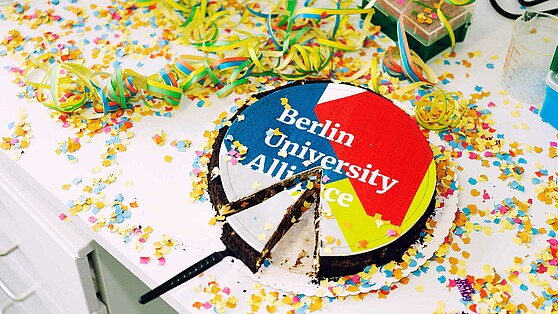 © Berlin University Alliance / Matthias Heyde
Facts & EventsThe decision has been made: Brain City Berlin is entering the next round of Excellence funding from the Federal and State governments with five…→
© Berlin University Alliance / Matthias Heyde
Facts & EventsThe decision has been made: Brain City Berlin is entering the next round of Excellence funding from the Federal and State governments with five…→Excellence strategy: Berlin to participate with 5 clusters
-
Insights Transfer – Stories
 © HTW Berlin/Alexander Rentsch
Insights Transfer – StoriesThe KI-Werkstatt at the HTW Berlin brings together the university’s expertise in an interdisciplinary manner to research the practical use of AI.→
© HTW Berlin/Alexander Rentsch
Insights Transfer – StoriesThe KI-Werkstatt at the HTW Berlin brings together the university’s expertise in an interdisciplinary manner to research the practical use of AI.→Strengthening generative AI in research and teaching
-
Facts & Events
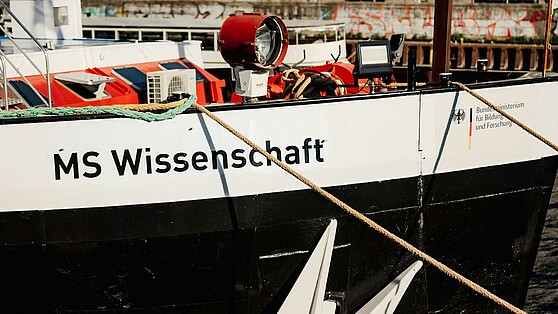 © Ilja C Hendel / Wissenschaft im Dialog, CC BY-SA 4.0
Facts & EventsIt's that time again: the exhibition ship once again is sailing on German waters. 29 cities are on the programme this year.→
© Ilja C Hendel / Wissenschaft im Dialog, CC BY-SA 4.0
Facts & EventsIt's that time again: the exhibition ship once again is sailing on German waters. 29 cities are on the programme this year.→Ahoi! MS Wissenschaft on Tour 2025
-
Facts & Events Transfer – Stories
 © DLR (CC BY-NC-ND 3.0)
Facts & Events Transfer – StoriesWith the newly founded institute, the German Aerospace Center is pooling its expertise in the field of space instruments and space research in Brain…→
© DLR (CC BY-NC-ND 3.0)
Facts & Events Transfer – StoriesWith the newly founded institute, the German Aerospace Center is pooling its expertise in the field of space instruments and space research in Brain…→New DLR Institute of Space Research
-
Facts & Events
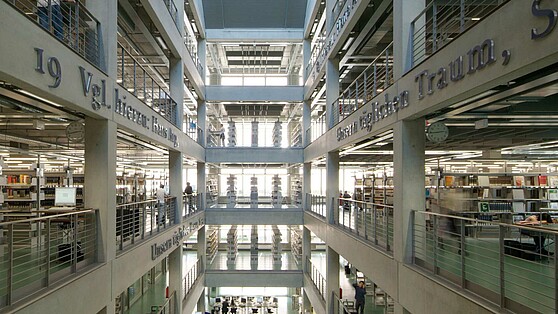 © TU Berlin / Ulrich Dahl
Facts & EventsTogether with Berlin Universities Publishing (BerlinUP), Technische Universität Berlin is actively involved in setting up the national Service centre…→
© TU Berlin / Ulrich Dahl
Facts & EventsTogether with Berlin Universities Publishing (BerlinUP), Technische Universität Berlin is actively involved in setting up the national Service centre…→Strengthening open science
-
Facts & Events
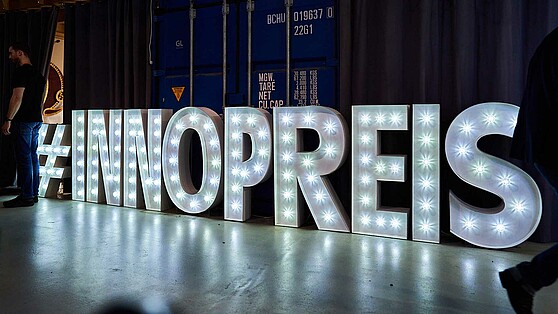 © Agentur Medienlabor / Stefan Schubert
Facts & EventsIdeas for innovative products, concepts and solutions are sought that exemplify the innovative power and economic strength of the capital region.→
© Agentur Medienlabor / Stefan Schubert
Facts & EventsIdeas for innovative products, concepts and solutions are sought that exemplify the innovative power and economic strength of the capital region.→
Berlin Brandenburg Innovation Award 2025: Apply by July 14!
-
Startup Transfer – Stories
 © theion
Startup Transfer – StoriesThe start-up theion wants to revolutionise the battery market and accelerate the energy transition with a new technology in Brain City Berlin.→
© theion
Startup Transfer – StoriesThe start-up theion wants to revolutionise the battery market and accelerate the energy transition with a new technology in Brain City Berlin.→“Batteries made in Germany, made in Berlin”
-
Facts & Events
 © Frank Richtersmeier
Facts & EventsAn Easter walk can easily be combined with a good cause. Here are our Citizen Science favourites.→
© Frank Richtersmeier
Facts & EventsAn Easter walk can easily be combined with a good cause. Here are our Citizen Science favourites.→Master Hare and Butterflies – Explore Nature at Easter!
-
Facts & Events
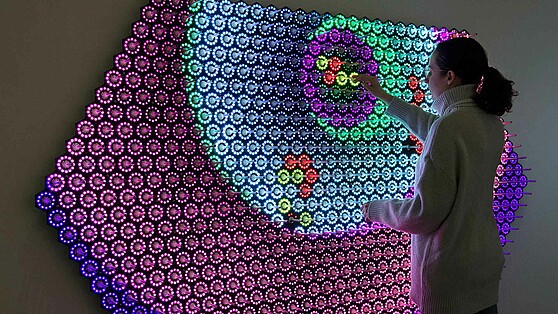 © Robin Baumgarten
Facts & EventsOn April 14, Urania Berlin celebrates World Quantum Day - and 100 years of quantum physics. The event is hosted by the German Physical Society (DPG).→
© Robin Baumgarten
Facts & EventsOn April 14, Urania Berlin celebrates World Quantum Day - and 100 years of quantum physics. The event is hosted by the German Physical Society (DPG).→World Quantum Day 2025: Quantum Research for Everyone
-
Insights Transfer – Stories
 © Berlin University Alliance / Stefan Klenke
Insights Transfer – StoriesWith the innovate! lab, the Berlin University Alliance (BUA) aims to bring cutting-edge research into practice quickly and purposefully. Dr.…→
© Berlin University Alliance / Stefan Klenke
Insights Transfer – StoriesWith the innovate! lab, the Berlin University Alliance (BUA) aims to bring cutting-edge research into practice quickly and purposefully. Dr.…→“Research transfer through agility”
-
Facts & Events
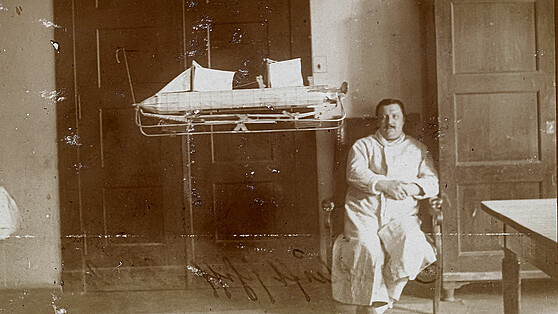 © Institute for the History of Medicine and Medical Ethics, Charité (IGM-K-HPAC 3086-1908)
Facts & EventsIn the exhibition “Inventing-Mania!”, the Berlin Museum of Medical History tells the story of “Engineer von Tarden” and his sailing airship.→
© Institute for the History of Medicine and Medical Ethics, Charité (IGM-K-HPAC 3086-1908)
Facts & EventsIn the exhibition “Inventing-Mania!”, the Berlin Museum of Medical History tells the story of “Engineer von Tarden” and his sailing airship.→Inventing-Mania – and the Dream of Flying
-
Facts & Events
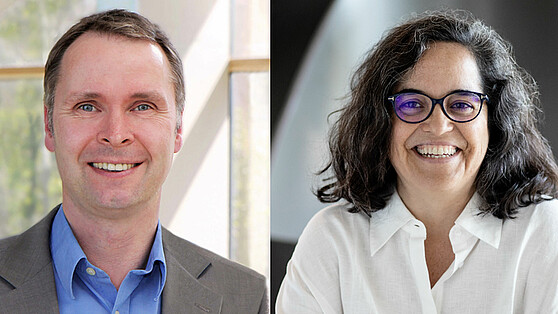 Prof. Dr. Volker Haucke: FMP © Silke Oßwald; Prof. Dr. Ana Prombo: MDC © Pablo Castagnola
Facts & EventsProf. Dr. Ana Pombo (MDC) and Prof. Dr. Volker Haucke (FMP), have been awarded the Gottfried Wilhelm Leibniz Prize 2025.→
Prof. Dr. Volker Haucke: FMP © Silke Oßwald; Prof. Dr. Ana Prombo: MDC © Pablo Castagnola
Facts & EventsProf. Dr. Ana Pombo (MDC) and Prof. Dr. Volker Haucke (FMP), have been awarded the Gottfried Wilhelm Leibniz Prize 2025.→Leibniz Prize for 2 top Berlin researchers
-
Facts & Events Transfer – Stories
 © Berlin Partner / eventfotografen.berlin
Facts & Events Transfer – StoriesOn March 4, a total of 19 universities, colleges and non-university research institutions signed the statutes of UNITE Sciences e.V.→
© Berlin Partner / eventfotografen.berlin
Facts & Events Transfer – StoriesOn March 4, a total of 19 universities, colleges and non-university research institutions signed the statutes of UNITE Sciences e.V.→UNITE Sciences: Accelerating technology transfer
-
Facts & Events
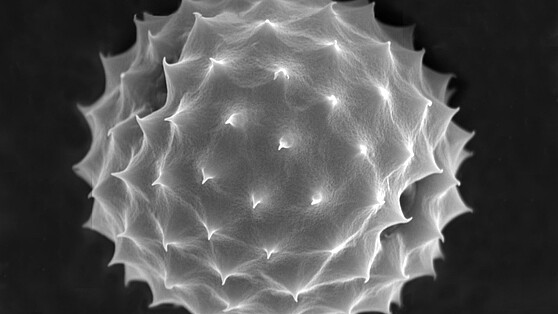 © ZAUM / Christine Weil
Facts & EventsA research group from Charité – Universitätsmedizin Berlin has developed an app that allows the pollen count in Brain City Berlin to be tracked at…→
© ZAUM / Christine Weil
Facts & EventsA research group from Charité – Universitätsmedizin Berlin has developed an app that allows the pollen count in Brain City Berlin to be tracked at…→Charité App "Pollenius": Data from the Pollen Trap
-
Facts & Events
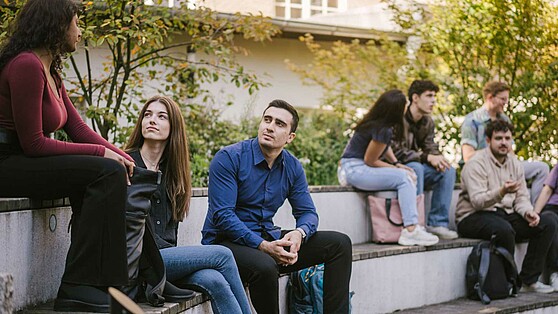 © HTW Berlin/ Alexander Rentsch
Facts & EventsAt 51 percent, Brain City Berlin has the highest rate of first-time university graduates in Germany.→
© HTW Berlin/ Alexander Rentsch
Facts & EventsAt 51 percent, Brain City Berlin has the highest rate of first-time university graduates in Germany.→First university degrees: Berlin in top position nationwide in 2023
-
Facts & Events
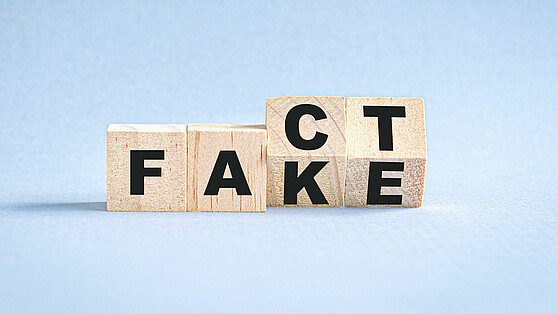 © Shutterstock/Sineeho
Facts & EventsResearchers at the Max Planck Institute for Human Development conducted a meta-analysis to examine who is particularly susceptible to fake news that…→
© Shutterstock/Sineeho
Facts & EventsResearchers at the Max Planck Institute for Human Development conducted a meta-analysis to examine who is particularly susceptible to fake news that…→Fake News: Who falls for it and why?
-
Facts & Events
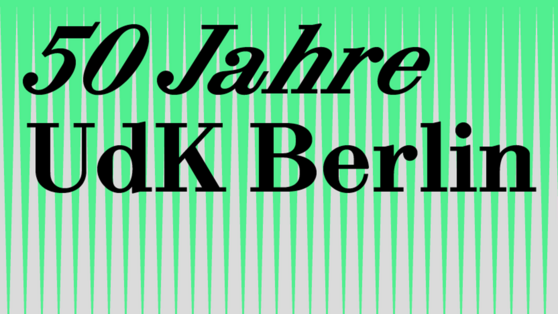 © UdK Berlin / Design: Ira Göller und Sophie Pischel
Facts & EventsOn 8 February, the Berlin University of the Arts will kick off its anniversary year. With interdisciplinary performances, dance, theatre,…→
© UdK Berlin / Design: Ira Göller und Sophie Pischel
Facts & EventsOn 8 February, the Berlin University of the Arts will kick off its anniversary year. With interdisciplinary performances, dance, theatre,…→50 years: UdK Berlin celebrates the diversity of its disciplines
-
Facts & Events Transfer – Stories
 © IHK Berlin
Facts & Events Transfer – StoriesTU Berlin and IHK Berlin want to work closely together to promote university spin-offs and innovation in Brain City Berlin. An agreement has now been…→
© IHK Berlin
Facts & Events Transfer – StoriesTU Berlin and IHK Berlin want to work closely together to promote university spin-offs and innovation in Brain City Berlin. An agreement has now been…→Cooperation agreement between TU Berlin and IHK Berlin signed
-
Facts & Events
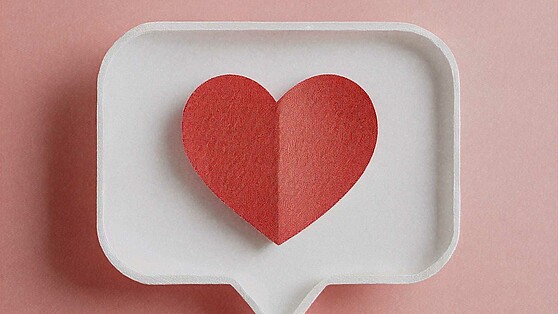 © Shutterstock. AI Generator
Facts & EventsDo stable relationships matter more to women or to men? A study, in which the Institute of Psychology at HU Berlin was involved in a leading role,…→
© Shutterstock. AI Generator
Facts & EventsDo stable relationships matter more to women or to men? A study, in which the Institute of Psychology at HU Berlin was involved in a leading role,…→Romantic Gender Gap
-
Facts & Events
![© LNDW/Matthias Frank [Translate to en:] Frau experimentiert mit Glaskolben auf der LNDW 2024, Brain City Berlin](/fileadmin/_processed_/9/7/csm_1920x1080_c_LNDW_Matthias_Frank_a865e182fa.jpg) © LNDW/Matthias Frank
Facts & Events200 years of Museumsinsel, 100 years of quantum science, 50 years of the Berlin University of the Arts, 25 years of LNDW: In 2025, Brain City Berlin…→
© LNDW/Matthias Frank
Facts & Events200 years of Museumsinsel, 100 years of quantum science, 50 years of the Berlin University of the Arts, 25 years of LNDW: In 2025, Brain City Berlin…→Brain City Berlin 2025: our Top 10 Events
-
Insights Transfer – Stories
 © BettaF!sh/Valentin Pellio
Insights Transfer – StoriesThe start-up BettaF!sh develops and produces the world's first authentic seaweed-based fish alternatives in Brain City Berlin.→
© BettaF!sh/Valentin Pellio
Insights Transfer – StoriesThe start-up BettaF!sh develops and produces the world's first authentic seaweed-based fish alternatives in Brain City Berlin.→“We are breaking new ground with everything we do”
-
Insights Transfer – Stories
 © Berlin Partner/Eventfotografen
Insights Transfer – StoriesThe research landscape in Berlin and Brandenburg is excellent but quite fragmented. The UNITE consortium aims to change that.→
© Berlin Partner/Eventfotografen
Insights Transfer – StoriesThe research landscape in Berlin and Brandenburg is excellent but quite fragmented. The UNITE consortium aims to change that.→UNITE: Fostering Synergies, Accelerating Innovations
-
Facts & Events
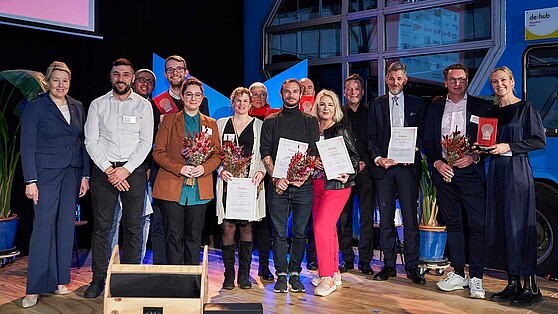 © Agentur Medienlabor | Stefan Schubert
Facts & EventsThe winners of the Berlin Brandenburg Innovation Award 2024 have been announced. A total of 125 companies, teams, and collaborations from science and…→
© Agentur Medienlabor | Stefan Schubert
Facts & EventsThe winners of the Berlin Brandenburg Innovation Award 2024 have been announced. A total of 125 companies, teams, and collaborations from science and…→Innovation Award 2024: Winners
-
Facts & Events Transfer – Stories
 © Berlin Partner
Facts & Events Transfer – StoriesThe fourth Transfer Week Berlin-Brandenburg from November 25 to 29 will focus on the latest developments in regional transfer activities. 62 partner…→
© Berlin Partner
Facts & Events Transfer – StoriesThe fourth Transfer Week Berlin-Brandenburg from November 25 to 29 will focus on the latest developments in regional transfer activities. 62 partner…→The future of knowledge transfer: Transfer Week 2024
-
Insights Transfer – Stories
 CCC © Michael Reinhardt
Insights Transfer – StoriesBrain City Interview with Dr. Anita Dame, Managing Director of the Climate Change Center Berlin Brandenburg.→
CCC © Michael Reinhardt
Insights Transfer – StoriesBrain City Interview with Dr. Anita Dame, Managing Director of the Climate Change Center Berlin Brandenburg.→“Climate transformation is a marathon”
-
Facts & Events
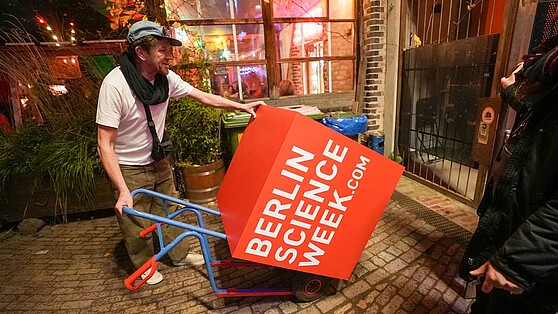 © Falling Walls Foundation
Facts & EventsFrom 1 to 10 November Brain City Berlin will once again be in the spotlight. The varied programme of the 9th Berlin Science Week includes more than…→
© Falling Walls Foundation
Facts & EventsFrom 1 to 10 November Brain City Berlin will once again be in the spotlight. The varied programme of the 9th Berlin Science Week includes more than…→Finding common ground: Berlin Science Week 2024
-
Facts & Events Transfer – Stories
 © CeRRI 2024
Facts & Events Transfer – StoriesTransfer activities and research do not compete with each other. On the contrary! This is one of the key findings of the “Transfer 1000” study…→
© CeRRI 2024
Facts & Events Transfer – StoriesTransfer activities and research do not compete with each other. On the contrary! This is one of the key findings of the “Transfer 1000” study…→„Transfer 1000“: Study on science transfer
-
Insights Transfer – Stories
 © edelviz
Insights Transfer – StoriesBrain City interview with Lia Carlucci, Managing Director of the Food Campus Berlin. She tells us more about the current status of the project - and…→
© edelviz
Insights Transfer – StoriesBrain City interview with Lia Carlucci, Managing Director of the Food Campus Berlin. She tells us more about the current status of the project - and…→“Collaboration instead of competition”
-
Facts & Events Transfer – Stories
 © HTW/ZfS
Facts & Events Transfer – StoriesClimate, health and sustainability – these are the main topics of Transferale. From 25 to 27 September, the science and transfer festival will be held…→
© HTW/ZfS
Facts & Events Transfer – StoriesClimate, health and sustainability – these are the main topics of Transferale. From 25 to 27 September, the science and transfer festival will be held…→Ideas for Berlin’s future
-
Facts & Events
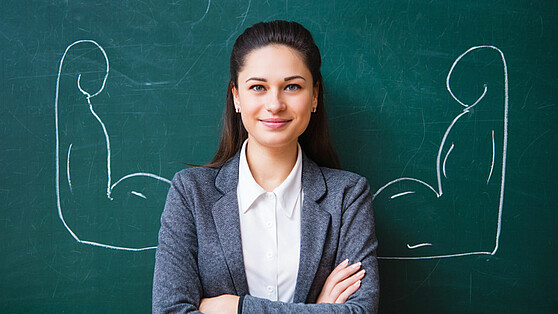 © Adobe Stock/stockartstudio
Facts & EventsThe Humboldt-Universität zu Berlin has almost doubled the proportion of women in professorships in around 15 years. The gender ratio among academic…→
© Adobe Stock/stockartstudio
Facts & EventsThe Humboldt-Universität zu Berlin has almost doubled the proportion of women in professorships in around 15 years. The gender ratio among academic…→HU Berlin: more women in science
-
Startup Transfer – Stories
 © STOFF2/Kerstin Reisch
Startup Transfer – StoriesBerlin Start-up STOFF2 wants to bring the ‘Zinc Intermediate-step Electrolyser’ (ZZE) to market maturity and is working closely with the TU Berlin to…→
© STOFF2/Kerstin Reisch
Startup Transfer – StoriesBerlin Start-up STOFF2 wants to bring the ‘Zinc Intermediate-step Electrolyser’ (ZZE) to market maturity and is working closely with the TU Berlin to…→The small, subtle intermediate step
-
Facts & Events
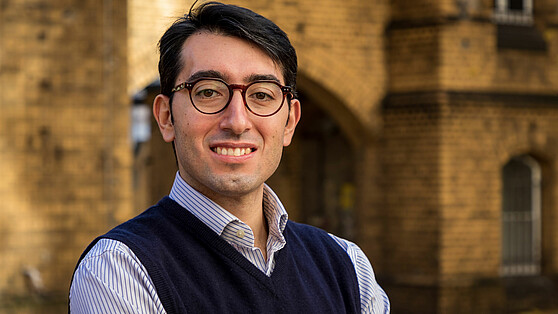 © Max Delbrück Center / Felix Petermann
Facts & EventsDr. Gabriele Schiattarella has been presented with the “Outstanding Investigator Award” by the International Society for Heart Research ISHR. The…→
© Max Delbrück Center / Felix Petermann
Facts & EventsDr. Gabriele Schiattarella has been presented with the “Outstanding Investigator Award” by the International Society for Heart Research ISHR. The…→Berlin heart researcher honoured
-
Facts & Events
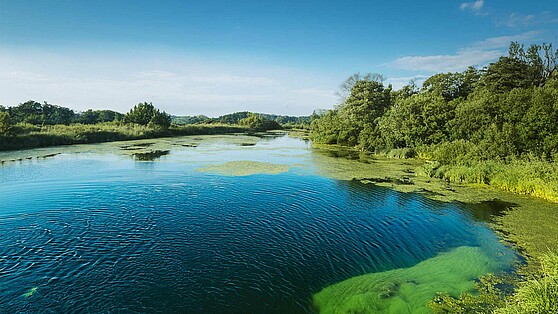 firefly.adobe (AI-generated)
Facts & EventsA research team from the “Global Lake Ecological Observatory Network” (GLEON) has summarised which factors can curb blue-green algae. Researchers from…→
firefly.adobe (AI-generated)
Facts & EventsA research team from the “Global Lake Ecological Observatory Network” (GLEON) has summarised which factors can curb blue-green algae. Researchers from…→Heavy rain, fish and bacteria: What stops blue-green algae?
-
Insights Transfer – Stories
 © WISTA Management GmbH – www.adlershof.de
Insights Transfer – StoriesThe Adlershof Science and Technology Park is the largest of Berlin’s eleven future locations. The close connection between science and business has…→
© WISTA Management GmbH – www.adlershof.de
Insights Transfer – StoriesThe Adlershof Science and Technology Park is the largest of Berlin’s eleven future locations. The close connection between science and business has…→“We thrive on proximity and exchange”
-
Facts & Events
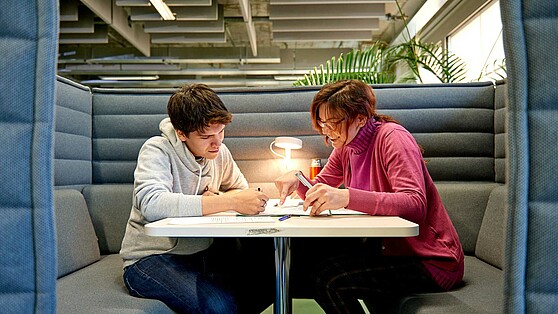 © TU Berlin / Philipp Arnoldt
Facts & EventsThis will be possible in the joint university library of TU Berlin and UdK Berlin from January 2025. The Berlin Senate approved the model project for…→
© TU Berlin / Philipp Arnoldt
Facts & EventsThis will be possible in the joint university library of TU Berlin and UdK Berlin from January 2025. The Berlin Senate approved the model project for…→Studying in the university library 24/7
-
Facts & Events
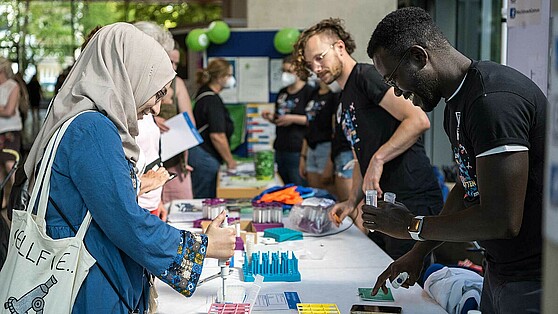 © Max Delbrück Center / Stefanie Loos
Facts & EventsOn the evening of 22 June, Brain City Berlin will once again present itself in all its diversity. The motto of the LNDW 2024: “Experience. Understand.…→
© Max Delbrück Center / Stefanie Loos
Facts & EventsOn the evening of 22 June, Brain City Berlin will once again present itself in all its diversity. The motto of the LNDW 2024: “Experience. Understand.…→Long Night of Science 2024
-
Insights Transfer – Stories
 © Berlin Partner
Insights Transfer – StoriesThe “Additive Manufacturing Berlin Brandenburg” (AMBER) cluster aims to accelerate the transfer of results from cutting-edge research into…→
© Berlin Partner
Insights Transfer – StoriesThe “Additive Manufacturing Berlin Brandenburg” (AMBER) cluster aims to accelerate the transfer of results from cutting-edge research into…→AMBER: Networking cutting-edge research and industry
-
Facts & Events
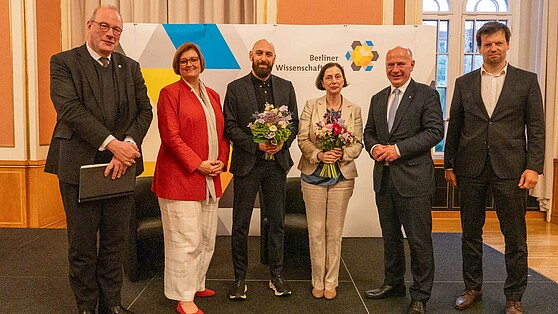 © Landesarchiv Berlin/Wunstorf
Facts & EventsThe linguist was honoured with the Berlin Science Prize 2023 by the Governing Mayor of Berlin, Kai Wegner on May 27. The Young Talent Prize went to…→
© Landesarchiv Berlin/Wunstorf
Facts & EventsThe linguist was honoured with the Berlin Science Prize 2023 by the Governing Mayor of Berlin, Kai Wegner on May 27. The Young Talent Prize went to…→Berlin Science Prize 2023 for Artemis Alexiadou
-
Facts & Events
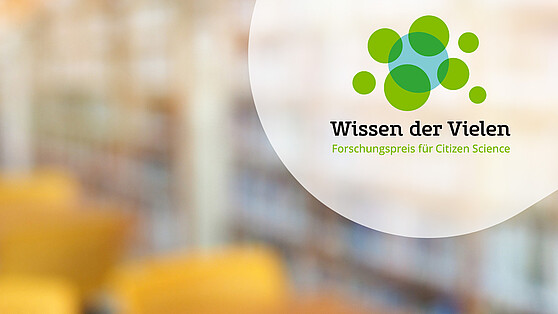 © mit:forschen!
Facts & EventsScientists from all disciplines can still be nominated until 3 June for the “Wissen der Vielen – Forschungspreis für Citizen Science” 2024.→
© mit:forschen!
Facts & EventsScientists from all disciplines can still be nominated until 3 June for the “Wissen der Vielen – Forschungspreis für Citizen Science” 2024.→Wanted: excellent publications on citizen science!
-
Facts & Events
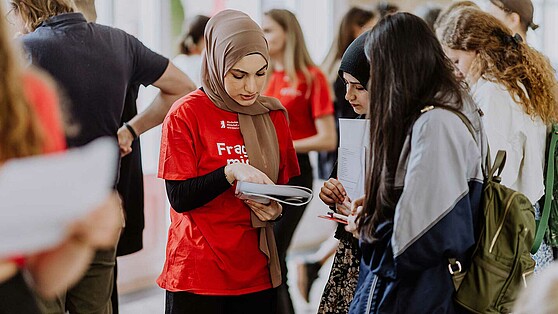 © HWR Berlin/Lukas Schramm
Facts & EventsStudy – yes. But at which university? And above all: which subject? This year, Berlin’s universities and colleges are once again inviting students to…→
© HWR Berlin/Lukas Schramm
Facts & EventsStudy – yes. But at which university? And above all: which subject? This year, Berlin’s universities and colleges are once again inviting students to…→Student Information Days 2024
-
Facts & Events
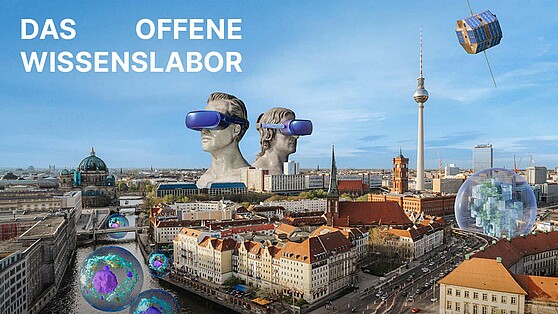 © Berlin University Alliance
Facts & Events“The Open Knowledge Laboratory – for the great transformations of our time”: With a new campaign, the Berlin University Alliance is making…→
© Berlin University Alliance
Facts & Events“The Open Knowledge Laboratory – for the great transformations of our time”: With a new campaign, the Berlin University Alliance is making…→Berlin University Alliance launches a new campaign
-
Facts & Events
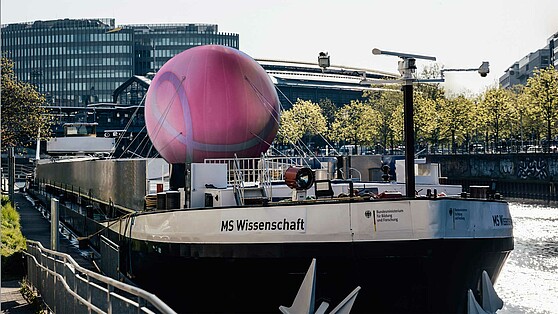 © Retusche: Ralitsa Kirova/Wissenschaft im Dialog CCBY-SA4.0
Facts & EventsFrom 14 May, the floating science centre “MS Wissenschaft” will once again embark on a long voyage through Germany with an interactive exhibition on…→
© Retusche: Ralitsa Kirova/Wissenschaft im Dialog CCBY-SA4.0
Facts & EventsFrom 14 May, the floating science centre “MS Wissenschaft” will once again embark on a long voyage through Germany with an interactive exhibition on…→All aboard! MS Wissenschaft on tour
-
Insights Transfer – Stories
 © Kai Müller Photography
Insights Transfer – StoriesA newspaper interview provided the impetus for founding the start-up. Brain City interview with airpuls founder Prof. Dr.-Ing. habil. Slawomir…→
© Kai Müller Photography
Insights Transfer – StoriesA newspaper interview provided the impetus for founding the start-up. Brain City interview with airpuls founder Prof. Dr.-Ing. habil. Slawomir…→airpuls: 5G solutions from research
-
Facts & Events
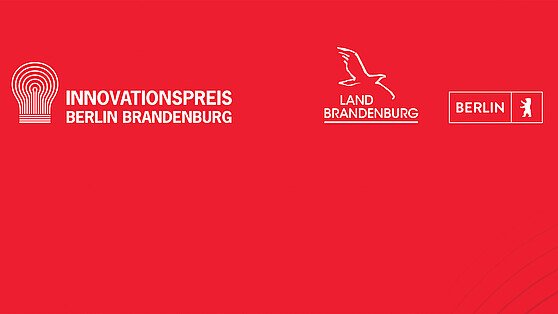 © Agentur Medienlabor
Facts & EventsThe application phase is open: Until July 8, companies, start-ups and craft businesses based in the Capital Region can submit their documents for the…→
© Agentur Medienlabor
Facts & EventsThe application phase is open: Until July 8, companies, start-ups and craft businesses based in the Capital Region can submit their documents for the…→Starting signal for the Berlin Brandenburg Innovation Award 2024
-
Insights Transfer – Stories
 Shutterstock © optimarc
Insights Transfer – StoriesWith a new transfer certificate, the TU Berlin certifies practical skills for students who have dealt with methods and issues of knowledge and…→
Shutterstock © optimarc
Insights Transfer – StoriesWith a new transfer certificate, the TU Berlin certifies practical skills for students who have dealt with methods and issues of knowledge and…→Thinking outside the box
-
Insights Transfer – Stories Innovations
 © Berlin Partner
Insights Transfer – Stories InnovationsQuantum technology is considered to be the next big technological leap. The Brain City Berlin offers ideal conditions for this.→
© Berlin Partner
Insights Transfer – Stories InnovationsQuantum technology is considered to be the next big technological leap. The Brain City Berlin offers ideal conditions for this.→BERLIN QUANTUM: a new initiative for quantum technologies
-
Facts & Events
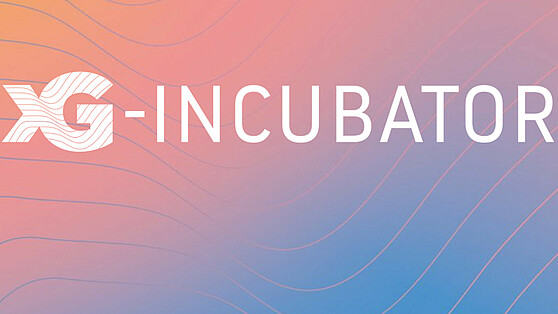 © xg-incubator.com
Facts & EventsUntil March 31, start-ups and founders can apply for the new xG-Incubator of TU Berlin and Fraunhofer HHI.→
© xg-incubator.com
Facts & EventsUntil March 31, start-ups and founders can apply for the new xG-Incubator of TU Berlin and Fraunhofer HHI.→Apply now! Ideas for the future of communication
-
Facts & Events
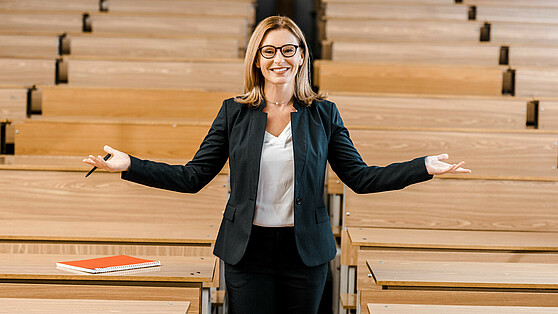 Shutterstock © LightField Studios
Facts & EventsHU Berlin, TU Berlin, ASH Berlin, BHT and HfS Ernst Busch – these Berlin universities have been selected for funding in the first round of the Joint…→
Shutterstock © LightField Studios
Facts & EventsHU Berlin, TU Berlin, ASH Berlin, BHT and HfS Ernst Busch – these Berlin universities have been selected for funding in the first round of the Joint…→Professorinnenprogramm 2030: 5 Berlin universities selected
-
Insights Transfer – Stories
 Design © Sarah Engler; Foto © Alexander Bob
Insights Transfer – StoriesBrain City Interview with Prof. Dr. Uwe Bettig. As Professor of Management and Business Administration at ASH Berlin, he heads the IFAF project…→
Design © Sarah Engler; Foto © Alexander Bob
Insights Transfer – StoriesBrain City Interview with Prof. Dr. Uwe Bettig. As Professor of Management and Business Administration at ASH Berlin, he heads the IFAF project…→Many creative ideas and approaches
-
Insights Transfer – Stories
 © Ivar Veermae
Insights Transfer – StoriesAt EINS in Berlin-Charlottenburg, the TU Berlin supports start-ups that meet global challenges sustainably in three ways. Universities and colleges…→
© Ivar Veermae
Insights Transfer – StoriesAt EINS in Berlin-Charlottenburg, the TU Berlin supports start-ups that meet global challenges sustainably in three ways. Universities and colleges…→Economical, ecological, social
-
Facts & Events
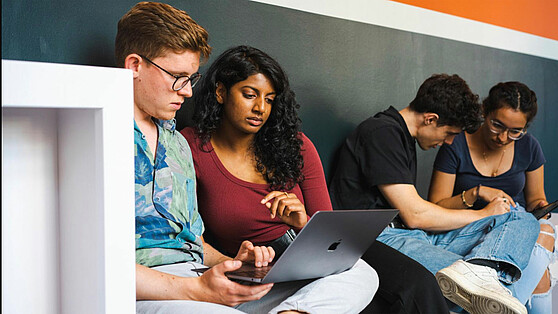 © HTW Berlin/Chris Hartung
Facts & EventsFrom 12 to 16 February, the Career Services of the universities and colleges in Berlin and Brandenburg invite you to the first joint Career Week. It…→
© HTW Berlin/Chris Hartung
Facts & EventsFrom 12 to 16 February, the Career Services of the universities and colleges in Berlin and Brandenburg invite you to the first joint Career Week. It…→Tips and information on starting a career
-
Facts & Events Transfer – Stories
 TU Berlin © Felix Noak
Facts & Events Transfer – StoriesInterdisciplinary research teams have until 29 April to submit their proposals for the Next Grand Challenge initiative of the Berlin University…→
TU Berlin © Felix Noak
Facts & Events Transfer – StoriesInterdisciplinary research teams have until 29 April to submit their proposals for the Next Grand Challenge initiative of the Berlin University…→Next Grand Challenge: apply now!
-
Facts & Events
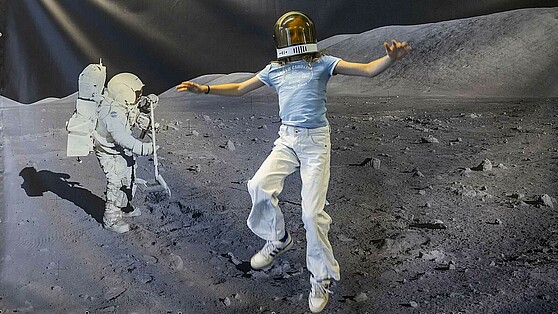 LNDW / Freie Universität Berlin © Rolf Schulten
Facts & EventsWhether it’s about freedom, time or knowledge transfer – the Brain City Berlin calendar of events in 2024 will once again include many exciting topics…→
LNDW / Freie Universität Berlin © Rolf Schulten
Facts & EventsWhether it’s about freedom, time or knowledge transfer – the Brain City Berlin calendar of events in 2024 will once again include many exciting topics…→Brain City Berlin 2024: our Top 10
-
Facts & Events Transfer – Stories
 © Alfred-Wegener-Institut/Micheal Gutsche (CC-BY 4.0)
Facts & Events Transfer – StoriesA special exhibition at the Deutsches Technikmuseum makes things crystal clear: There is little time left to save the Arctic.→
© Alfred-Wegener-Institut/Micheal Gutsche (CC-BY 4.0)
Facts & Events Transfer – StoriesA special exhibition at the Deutsches Technikmuseum makes things crystal clear: There is little time left to save the Arctic.→Exhibition tip: “Thin ice”
-
Insights Transfer – Stories
 © Zukunftsorte Berlin
Insights Transfer – StoriesAn interview with Brain City Ambassador Steffen Terberl, Head of the Zukunftsorte Berlin office.→
© Zukunftsorte Berlin
Insights Transfer – StoriesAn interview with Brain City Ambassador Steffen Terberl, Head of the Zukunftsorte Berlin office.→“So that innovation history can be written in Berlin again”
-
Insights Transfer – Stories
 © BHT-MINT-VR-Labs
Insights Transfer – StoriesAt the MINT VR labs at the Berliner Hochschule für Technik, an interdisciplinary team works on didactic concepts for virtual laboratories and…→
© BHT-MINT-VR-Labs
Insights Transfer – StoriesAt the MINT VR labs at the Berliner Hochschule für Technik, an interdisciplinary team works on didactic concepts for virtual laboratories and…→Learning through play in the virtual bio-lab
-
Facts & Events Transfer – Stories
 © BPWT
Facts & Events Transfer – StoriesWith an all-day kick-off conference in the stilwerk KantGaragen, the Transfer Week Berlin-Brandenburg 2023 starts. From 20 to 24 November, the event…→
© BPWT
Facts & Events Transfer – StoriesWith an all-day kick-off conference in the stilwerk KantGaragen, the Transfer Week Berlin-Brandenburg 2023 starts. From 20 to 24 November, the event…→“Science x Business”: Transfer Week 2023
-
Insights Transfer – Stories
 © edelVIZ
Insights Transfer – StoriesFrom 2024, the Food Campus Berlin is due to be built in Berlin’s industrial Tempelhof-Ost region. The Science Park will be focussing on nutrition and…→
© edelVIZ
Insights Transfer – StoriesFrom 2024, the Food Campus Berlin is due to be built in Berlin’s industrial Tempelhof-Ost region. The Science Park will be focussing on nutrition and…→Think Tank for the food of the future
-
Insights Transfer – Stories
 © Berlin Partner/Wüstenhagen
Insights Transfer – StoriesThe focus is on the science location, the science and technology transfer that is characteristic of Berlin – and of course the Brain City Ambassadors.…→
© Berlin Partner/Wüstenhagen
Insights Transfer – StoriesThe focus is on the science location, the science and technology transfer that is characteristic of Berlin – and of course the Brain City Ambassadors.…→Brain City Berlin launches new campaign motifs
-
Facts & Events Transfer – Stories
 © Falling Walls Foundation
Facts & Events Transfer – StoriesBerlin Science Week is back from November 1 to 10. New this year: The ART & SCIENCE FORUM at Holzmarkt 25 is the central location of the science…→
© Falling Walls Foundation
Facts & Events Transfer – StoriesBerlin Science Week is back from November 1 to 10. New this year: The ART & SCIENCE FORUM at Holzmarkt 25 is the central location of the science…→With a focus on art & science: Berlin Science Week 2023
-
Facts & Events
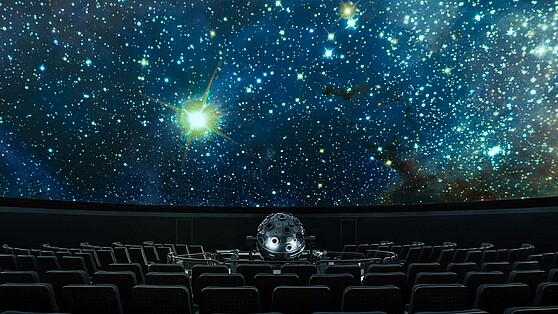 © SPB/Natalie Toczek
Facts & Events100 years of the Planetarium: On 21 October, the Zeiss-Großplanetarium celebrates the star show anniversary with a colourful program of astronomy,…→
© SPB/Natalie Toczek
Facts & Events100 years of the Planetarium: On 21 October, the Zeiss-Großplanetarium celebrates the star show anniversary with a colourful program of astronomy,…→Travel to space for free
-
Facts & Events Transfer – Stories
 © Peter Himsel/Campus Berlin-Buch GmbH
Facts & Events Transfer – StoriesBrain City Berlin has a new start-up centre: The BerlinBioCube on the Campus Berlin-Buch includes 8,000 square metres of modern laboratory and office…→
© Peter Himsel/Campus Berlin-Buch GmbH
Facts & Events Transfer – StoriesBrain City Berlin has a new start-up centre: The BerlinBioCube on the Campus Berlin-Buch includes 8,000 square metres of modern laboratory and office…→The BerlinBioCube is open
-
Facts & Events
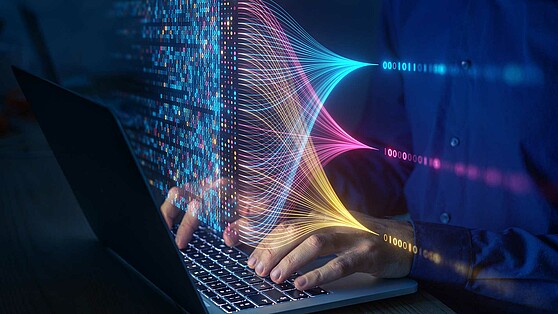 shutterstock.com©NicoEINino
Facts & EventsIn the "OpinionGPT" project, researchers at HU Berlin are investigating how biased training data affect artificial intelligence responses.→
shutterstock.com©NicoEINino
Facts & EventsIn the "OpinionGPT" project, researchers at HU Berlin are investigating how biased training data affect artificial intelligence responses.→Deliberately biased
-
Facts & Events
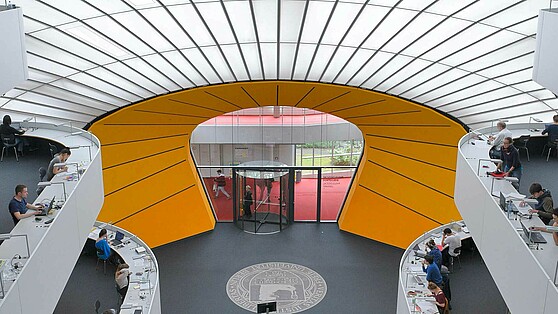 © FU Berlin/Bernd Wannenmacher
Facts & Events“Oral-History.Digital” is the name of a portal that went online this week. The University Library of the FU Berlin is a partner in the project funded…→
© FU Berlin/Bernd Wannenmacher
Facts & Events“Oral-History.Digital” is the name of a portal that went online this week. The University Library of the FU Berlin is a partner in the project funded…→New platform for contemporary witness interviews
-
Insights Transfer – Stories
 © Gisma
Insights Transfer – StoriesThe Gisma University of Applied Sciences has had a campus in the Brain City Berlin since 2017. More than 660 students from all over the world are…→
© Gisma
Insights Transfer – StoriesThe Gisma University of Applied Sciences has had a campus in the Brain City Berlin since 2017. More than 660 students from all over the world are…→Giving impulses to the economy
-
Facts & Events Transfer – Stories
 © HU Berlin
Facts & Events Transfer – Stories“TRAIN 4 Science” encourages children, but also adults, to deal with climate change in a playful way. The app was developed in the Brain City Berlin…→
© HU Berlin
Facts & Events Transfer – Stories“TRAIN 4 Science” encourages children, but also adults, to deal with climate change in a playful way. The app was developed in the Brain City Berlin…→On the virtual train to a sustainable future
-
Insights Transfer – Stories
 © HTW Berlin/Alexander Rentsch
Insights Transfer – StoriesAt the business and science location Berlin Schöneweide, tradition meets the ideas and solutions of tomorrow. The scientific nucleus of the area: the…→
© HTW Berlin/Alexander Rentsch
Insights Transfer – StoriesAt the business and science location Berlin Schöneweide, tradition meets the ideas and solutions of tomorrow. The scientific nucleus of the area: the…→A place of innovation and transformation
-
Insights Transfer – Stories
 © vdo
Insights Transfer – StoriesProf. Dr. Claus Bull and Dipl.-Ing. Dirk Jäger at the Berliner Hochschule für Technik are investigating what street trees need to survive and how they…→
© vdo
Insights Transfer – StoriesProf. Dr. Claus Bull and Dipl.-Ing. Dirk Jäger at the Berliner Hochschule für Technik are investigating what street trees need to survive and how they…→“The trees in the city have a lot to put up with”
-
Facts & Events
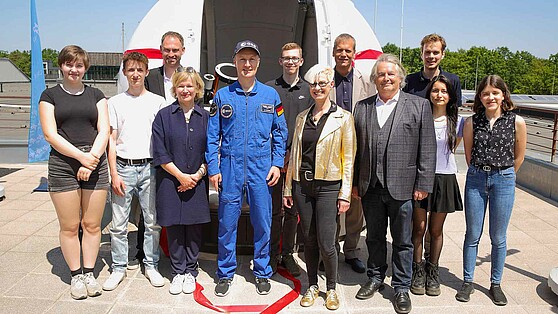 © DLR. All rights reserved
Facts & EventsIn the "DLR_School_LAB Online Observatory" schoolchildren across Germany can now observe the sun live online.→
© DLR. All rights reserved
Facts & EventsIn the "DLR_School_LAB Online Observatory" schoolchildren across Germany can now observe the sun live online.→Travel to the sun from the classroom
-
Facts & Events
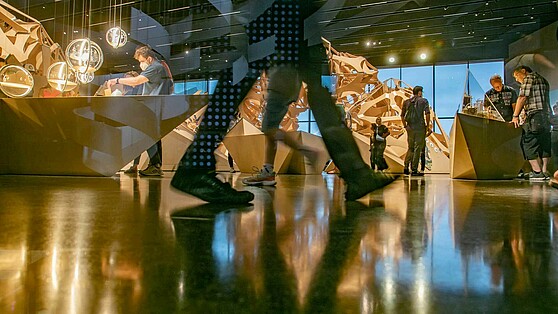 LNDM: Kulturprojekte © Christian Kielmann
Facts & EventsDo you get bored during the holidays? The Brain City Berlin offers a whole load of variety! Here are our holiday favourites.→
LNDM: Kulturprojekte © Christian Kielmann
Facts & EventsDo you get bored during the holidays? The Brain City Berlin offers a whole load of variety! Here are our holiday favourites.→10 tips for the summer
-
Insights Transfer – Stories
 © LAS Art Foundation/Juan Camilo Roan
Insights Transfer – Stories‘Pollinator Pathmaker’ is the name given to the living work of art that is currently flowering, buzzing and fluttering in front of the Museum für…→
© LAS Art Foundation/Juan Camilo Roan
Insights Transfer – Stories‘Pollinator Pathmaker’ is the name given to the living work of art that is currently flowering, buzzing and fluttering in front of the Museum für…→Garden art from an insect’s perspective
-
Insights Transfer – Stories
 © HTW Berlin/Alexander Rentsch
Insights Transfer – StoriesThe project "Zukunft findet Stadt - Hochschulnetzwerk für ein resilientes Berlin" is something that is so far unique for Berlin. Project leader Prof.…→
© HTW Berlin/Alexander Rentsch
Insights Transfer – StoriesThe project "Zukunft findet Stadt - Hochschulnetzwerk für ein resilientes Berlin" is something that is so far unique for Berlin. Project leader Prof.…→"We want innovations that are created in Berlin to be implemented here"
-
Facts & Events Transfer – Stories
 © BHT/Zarko Martovic
Facts & Events Transfer – StoriesOn 17 June, more than 60 scientific and science-related institutions in the Brain City Berlin and Potsdam will open their doors for the “Long Night of…→
© BHT/Zarko Martovic
Facts & Events Transfer – StoriesOn 17 June, more than 60 scientific and science-related institutions in the Brain City Berlin and Potsdam will open their doors for the “Long Night of…→Lange Nacht der Wissenschaften 2023
-
Facts & Events
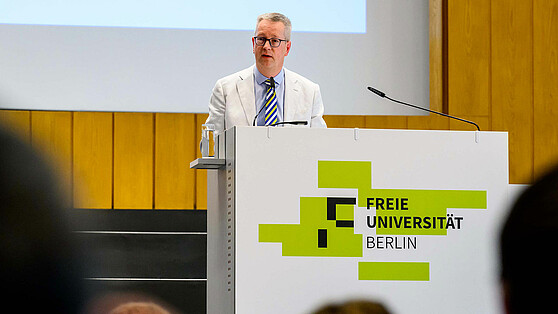 © FU Berlin / Svea Pietschmann
Facts & Events"Free thinking. Forming responsibility. Shaping change." Under this motto, the Freie Universität Berlin is celebrating its 75th birthday this year…→
© FU Berlin / Svea Pietschmann
Facts & Events"Free thinking. Forming responsibility. Shaping change." Under this motto, the Freie Universität Berlin is celebrating its 75th birthday this year…→75 Years of Freie Universität Berlin
-
Facts & Events Transfer – Stories
 © BSBI
Facts & Events Transfer – StoriesOn 24 June the AI scene will meet in Berlin-Neukölln. The “1st International Conference on Artificial Intelligence” at the BSBI is primarily about the…→
© BSBI
Facts & Events Transfer – StoriesOn 24 June the AI scene will meet in Berlin-Neukölln. The “1st International Conference on Artificial Intelligence” at the BSBI is primarily about the…→AI Conference at the Berlin School of Business & Innovation
-
Startup Transfer – Stories
 © Quantistry
Startup Transfer – StoriesThe Berlin start-up Quantistry makes chemical experiments in digital space possible with the help of Artificial Intelligence and quantum chemical…→
© Quantistry
Startup Transfer – StoriesThe Berlin start-up Quantistry makes chemical experiments in digital space possible with the help of Artificial Intelligence and quantum chemical…→The chemistry lab in the cloud
-
Facts & Events
![[Translate to English:] © David Ausserhofer Prof. Dr. Bénédicte Savoy, Brain City Berlin](/fileadmin/_processed_/4/b/csm_1920x1080_Benedicte_Savoy_c_David-Ausserhofer_bb0b0ad647.jpg) [Translate to English:] © David Ausserhofer
Facts & EventsThe Young Scientist Award (Nachwuchspreis) also went to a researcher from TU Berlin: Dr. Anja Maria Wagemans.→
[Translate to English:] © David Ausserhofer
Facts & EventsThe Young Scientist Award (Nachwuchspreis) also went to a researcher from TU Berlin: Dr. Anja Maria Wagemans.→TU professor Dr. Bénédicte Savoy receives Berliner Wissenschaftspreis
-
Insights Transfer – Stories
 © Hallbauer & Fioretti
Insights Transfer – StoriesBrain City interview: Prof. Dr. Emmanuelle Charpentier, Nobel Laureate and Managing Director of the Max Planck Unit for the Science of Pathogens.→
© Hallbauer & Fioretti
Insights Transfer – StoriesBrain City interview: Prof. Dr. Emmanuelle Charpentier, Nobel Laureate and Managing Director of the Max Planck Unit for the Science of Pathogens.→"Basic research is the basis for innovation"
-
Facts & Events
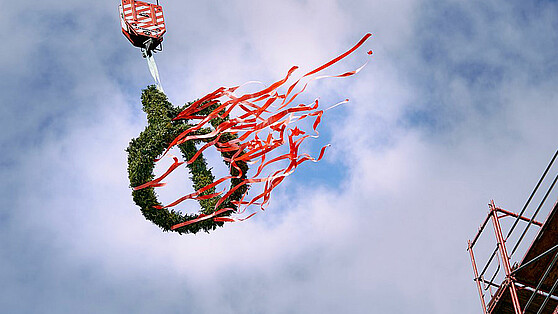 © ASH Berlin
Facts & EventsThe new extension building of ASH Berlin will create urgently needed space for around 1,700 students and a new refectory. The building is scheduled…→
© ASH Berlin
Facts & EventsThe new extension building of ASH Berlin will create urgently needed space for around 1,700 students and a new refectory. The building is scheduled…→Alice Salomon University celebrates topping-out ceremony
-
Facts & Events Innovations
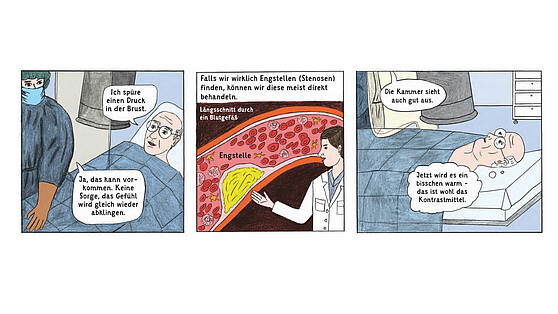 © Brand, Gao, Hamann, Martineck, Stangl/Charité
Facts & Events InnovationsThe Charité-Universitätsmedizin Berlin wants to inform patients with a comic before a heart catheter examination. As part of a study, the…→
© Brand, Gao, Hamann, Martineck, Stangl/Charité
Facts & Events InnovationsThe Charité-Universitätsmedizin Berlin wants to inform patients with a comic before a heart catheter examination. As part of a study, the…→A picture is worth a thousand words
-
Facts & Events Transfer – Stories
 © BVG/Andreas Süß
Facts & Events Transfer – StoriesWhat does an electric bus sound like? Lukas Esser, a student at Berlin University of the Arts, has developed the new sound for Germany’s electric…→
© BVG/Andreas Süß
Facts & Events Transfer – StoriesWhat does an electric bus sound like? Lukas Esser, a student at Berlin University of the Arts, has developed the new sound for Germany’s electric…→Electric sound of the future
-
Insights Transfer – Stories
 © ASH Berlin/Cristián Pérez
Insights Transfer – StoriesThe acronym SAGE, in German stands for Social Work, Health, Education and Training. Prof. Bettina Völter, Rector at the ASH Berlin, tells us more…→
© ASH Berlin/Cristián Pérez
Insights Transfer – StoriesThe acronym SAGE, in German stands for Social Work, Health, Education and Training. Prof. Bettina Völter, Rector at the ASH Berlin, tells us more…→SAGE – a social three-way alliance
-
Facts & Events
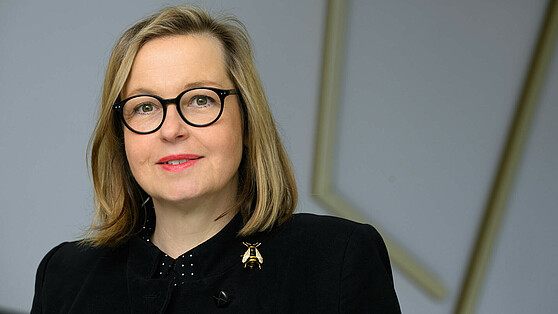 © DFG/David Ausserhofer
Facts & EventsHumanities scholar Prof. Dr. Anita Traninger received the Award from the German Research Foundation (DFG) last Wednesday in Brain City Berlin.→
© DFG/David Ausserhofer
Facts & EventsHumanities scholar Prof. Dr. Anita Traninger received the Award from the German Research Foundation (DFG) last Wednesday in Brain City Berlin.→Leibniz Award for FU Professor Anita Traninger
-
Facts & Events Transfer – Stories
 © Maschinenraum
Facts & Events Transfer – StoriesThe University of Applied Sciences wants to tap additional transfer potential by means of cooperation with the nationwide network of SMEs.→
© Maschinenraum
Facts & Events Transfer – StoriesThe University of Applied Sciences wants to tap additional transfer potential by means of cooperation with the nationwide network of SMEs.→HTW Berlin cooperates with Maschinenraum
-
Insights Transfer – Stories
 © QAH
Insights Transfer – StoriesThe "Zukunftsort" Technology Park Humboldthain represents the heyday of Berlin’s industrial history, but also stands for successful synergies between…→
© QAH
Insights Transfer – StoriesThe "Zukunftsort" Technology Park Humboldthain represents the heyday of Berlin’s industrial history, but also stands for successful synergies between…→Tradition meets innovation
-
Insights Transfer – Stories
 © Stefan Schostok
Insights Transfer – StoriesA guest article from Brain City Ambassador Prof. Dr. Selin Arikoglu, Professor of child and youth welfare at the Catholic University of Applied Social…→
© Stefan Schostok
Insights Transfer – StoriesA guest article from Brain City Ambassador Prof. Dr. Selin Arikoglu, Professor of child and youth welfare at the Catholic University of Applied Social…→Giving a scientific voice to the relatives of prisoners
-
Facts & Events Transfer – Stories
 © Berlin Partner
Facts & Events Transfer – StoriesWith a new image film Brain City Berlin starts the year 2023. Our Brain City Ambassadors are the protagonists of the video.→
© Berlin Partner
Facts & Events Transfer – StoriesWith a new image film Brain City Berlin starts the year 2023. Our Brain City Ambassadors are the protagonists of the video.→“We are Brain City Berlin”
-
Facts & Events
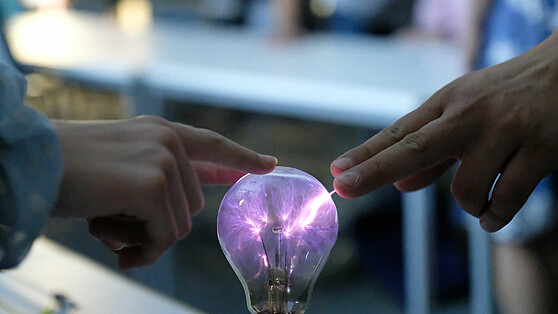 © DGZfP
Facts & EventsMany exciting and high-calibre events are once again on the Brain City Berlin event calendar this year. We present our favourites to you.→
© DGZfP
Facts & EventsMany exciting and high-calibre events are once again on the Brain City Berlin event calendar this year. We present our favourites to you.→Brain City Berlin 2023: the Top 10 Events
-
Facts & Events
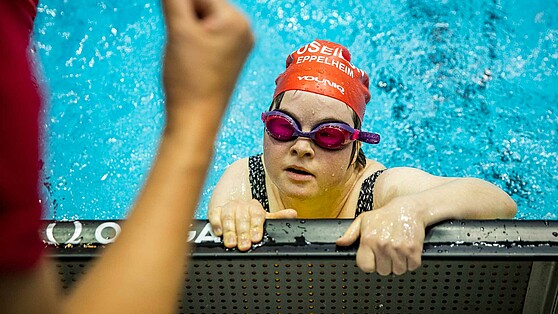 SOWG © Sarah Rauch/LOC
Facts & Events#TogetherUnbeatable: The Special Olympics World Games 2023 will be held in the sports metropolis of Berlin from 17 to 25 June. Researchers can…→
SOWG © Sarah Rauch/LOC
Facts & Events#TogetherUnbeatable: The Special Olympics World Games 2023 will be held in the sports metropolis of Berlin from 17 to 25 June. Researchers can…→Special Olympics World Games Berlin: join a researcher!
-
Insights Transfer – Stories
 © HWR Berlin/ Franziska Ihle
Insights Transfer – StoriesWith the project “KlinKe”, Prof. Dr. Silke Bustamante and her colleague Prof. Dr. Andrea Pelzeter at the HWR Berlin are researching which of the…→
© HWR Berlin/ Franziska Ihle
Insights Transfer – StoriesWith the project “KlinKe”, Prof. Dr. Silke Bustamante and her colleague Prof. Dr. Andrea Pelzeter at the HWR Berlin are researching which of the…→On the way to becoming a climate-neutral hospital
-
Facts & Events
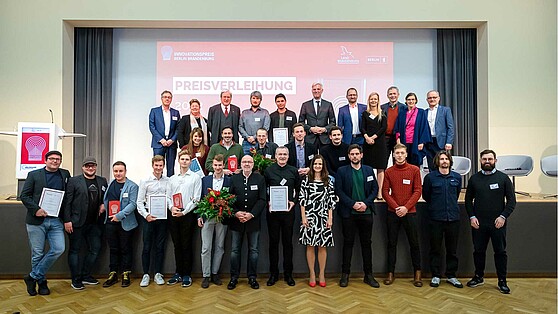 © Agentur Medienlabor/Benjamin Maltry
Facts & EventsThe jury presented five awards and one special award for particularly innovative products, concepts and solutions from the capital region.→
© Agentur Medienlabor/Benjamin Maltry
Facts & EventsThe jury presented five awards and one special award for particularly innovative products, concepts and solutions from the capital region.→Berlin Brandenburg Innovation Award: the winners 2022
-
Facts & Events Transfer – Stories
 © Transfer Week
Facts & Events Transfer – StoriesFrom 21 to 25 November, scientists can once again discuss future-oriented topics on a practical level together with companies from Berlin and…→
© Transfer Week
Facts & Events Transfer – StoriesFrom 21 to 25 November, scientists can once again discuss future-oriented topics on a practical level together with companies from Berlin and…→Providing impulses for cooperation: Transfer Week 2022
-
Facts & Events
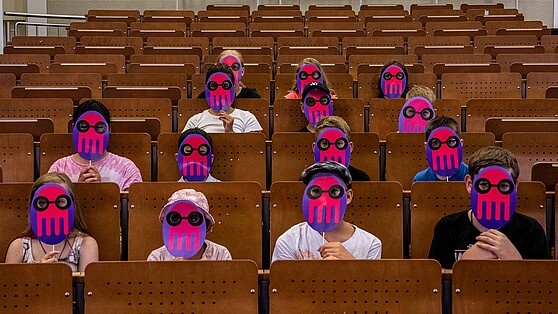 © Dirk Lamprecht / Visual Noise
Facts & EventsThe KinderUni Lichtenberg is celebrating its 20th anniversary this year with a “KUL Science Day” and an exciting series of lectures.→
© Dirk Lamprecht / Visual Noise
Facts & EventsThe KinderUni Lichtenberg is celebrating its 20th anniversary this year with a “KUL Science Day” and an exciting series of lectures.→From “Sweet, tasty – and dangerous” to “Riding a bike hands-free” - KUL lectures for children
-
Facts & Events Transfer – Stories
 © Falling Walls Foundation
Facts & Events Transfer – StoriesAn interview with Christine Brummer, director of Berlin Science Week.→
© Falling Walls Foundation
Facts & Events Transfer – StoriesAn interview with Christine Brummer, director of Berlin Science Week.→Opening up science for dialogue with society
-
Facts & Events
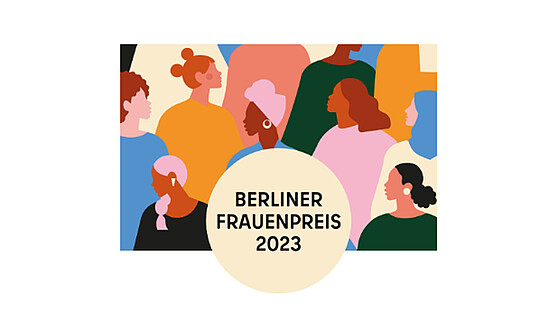 © Senatsverwaltung für Wissenschaft, Gesundheit, Pflege und Gleichstellung
Facts & EventsProposals can be submitted until 14 November 2022. The award, presented by the Senate Department for Higher Education and Research, Health, Long-Term…→
© Senatsverwaltung für Wissenschaft, Gesundheit, Pflege und Gleichstellung
Facts & EventsProposals can be submitted until 14 November 2022. The award, presented by the Senate Department for Higher Education and Research, Health, Long-Term…→Berliner Frauenpreis 2023
-
Insights Transfer – Stories
 Shutterstock © Monster Ztudio
Insights Transfer – StoriesWith the help of Artificial Intelligence, the research project “news-polygraph”, anchored in the Brain City Berlin, aims to identify manipulated media…→
Shutterstock © Monster Ztudio
Insights Transfer – StoriesWith the help of Artificial Intelligence, the research project “news-polygraph”, anchored in the Brain City Berlin, aims to identify manipulated media…→“news-polygraph”: Funding by the BMBF
-
Insights Transfer – Stories
 © Felix Noak
Insights Transfer – StoriesBrain City interview with Dr. phil. Thorsten Philipp, Advisor Transdisciplinary Teaching in the Office of the Vice Presidents of TU Berlin.→
© Felix Noak
Insights Transfer – StoriesBrain City interview with Dr. phil. Thorsten Philipp, Advisor Transdisciplinary Teaching in the Office of the Vice Presidents of TU Berlin.→“Everybody knows something”
-
Insights Transfer – Stories
 @ Ernestine von der Osten-Sacken
Insights Transfer – StoriesListening to sounds like the bat: On "Sound Walk" with Hannes Hoelzl, sound artist and lecturer for Generative Arts/Computational Arts at the UdK…→
@ Ernestine von der Osten-Sacken
Insights Transfer – StoriesListening to sounds like the bat: On "Sound Walk" with Hannes Hoelzl, sound artist and lecturer for Generative Arts/Computational Arts at the UdK…→Seeing with the Ears
-
Facts & Events
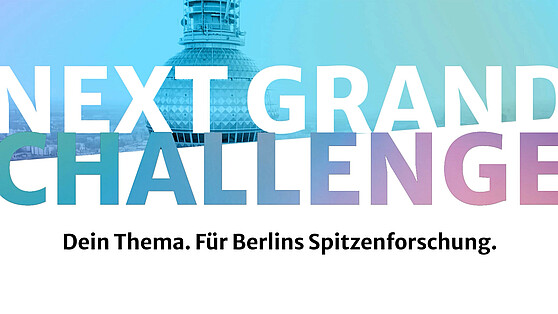 @ BUA
Facts & EventsTeenagers aged 14 to 18 and researchers and students from Brain City Berlin are invited to submit suggestions to the Berlin University Alliance for…→
@ BUA
Facts & EventsTeenagers aged 14 to 18 and researchers and students from Brain City Berlin are invited to submit suggestions to the Berlin University Alliance for…→Berlin University Alliance: Ideas wanted!
-
Facts & Events
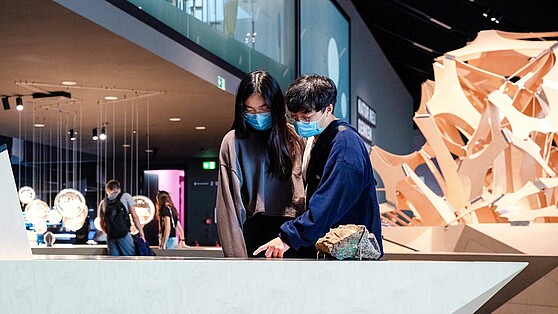 Futurium © David von Becker
Facts & EventsSummer holidays – six weeks in which we can explore Brain City Berlin in a completely new way. And not just at the Wannsee or Müggelsee. There are…→
Futurium © David von Becker
Facts & EventsSummer holidays – six weeks in which we can explore Brain City Berlin in a completely new way. And not just at the Wannsee or Müggelsee. There are…→5 Tips for the Holidays
-
Transfer – Stories
 Image: Shutterstock © Yurchanka Siarhei
Transfer – StoriesThe Berlin AI Competence Centre BIFOLD will receive 22 million Euro annually in the future from the Federal government and the State of Berlin.→
Image: Shutterstock © Yurchanka Siarhei
Transfer – StoriesThe Berlin AI Competence Centre BIFOLD will receive 22 million Euro annually in the future from the Federal government and the State of Berlin.→Millions in Funding for AI Research in Berlin
-
Transfer – Stories
 Falling Walls Foundation © Judith Schalansky
Transfer – StoriesFrom November 1st through the 10th, the scientific world comes together again in Brain City Berlin. Scientific institutions or organisations can still…→
Falling Walls Foundation © Judith Schalansky
Transfer – StoriesFrom November 1st through the 10th, the scientific world comes together again in Brain City Berlin. Scientific institutions or organisations can still…→“Dare to know”: Berlin Science Week 2022
-
Transfer – Stories
 EUREF AG©Gasometertour.de
Transfer – StoriesOn the site of the EUREF-Campus in Berlin-Schoeneberg the transfer of knowledge works particularly impressively.→
EUREF AG©Gasometertour.de
Transfer – StoriesOn the site of the EUREF-Campus in Berlin-Schoeneberg the transfer of knowledge works particularly impressively.→Hands-on Energy Transition
-
Facts & Events
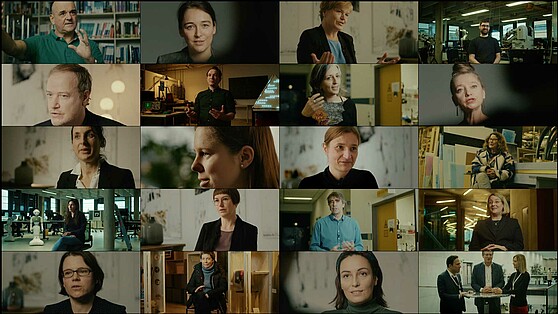 Image: Berlin University Alliance
Facts & Events"Wissen aus Berlin" (Knowledge from Berlin) is the name of a YouTube channel of the Berlin University Alliance. There is a new episode every Tuesday.→
Image: Berlin University Alliance
Facts & Events"Wissen aus Berlin" (Knowledge from Berlin) is the name of a YouTube channel of the Berlin University Alliance. There is a new episode every Tuesday.→Knowledge from Berlin
-
Transfer – Stories
 © SCC Events/Norbert Wilhelmi
Transfer – StoriesInterview with Brain City Ambassador Prof. Dr. Gabriele Mielke, Vice President of the VICTORIA | International University of Applied Sciences and also…→
© SCC Events/Norbert Wilhelmi
Transfer – StoriesInterview with Brain City Ambassador Prof. Dr. Gabriele Mielke, Vice President of the VICTORIA | International University of Applied Sciences and also…→"Major Events Affect Life in the City on Different Levels”
-
Facts & Events
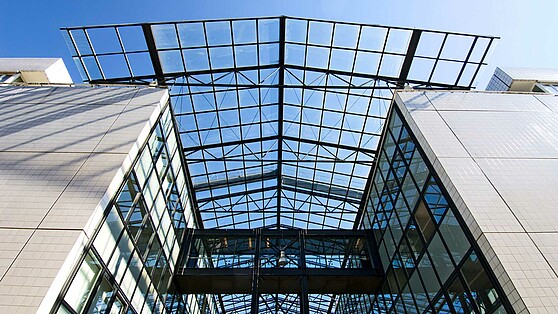 Credit: Michael Kompe @ HWR Berlin
Facts & EventsA joint application from five Berlin universities and an individual application bei ASH Berlin for funding under the nationwide "Innovative…→
Credit: Michael Kompe @ HWR Berlin
Facts & EventsA joint application from five Berlin universities and an individual application bei ASH Berlin for funding under the nationwide "Innovative…→“Innovative University” Funding Programme: 2 Berlin Applications Successful
-
Facts & Events
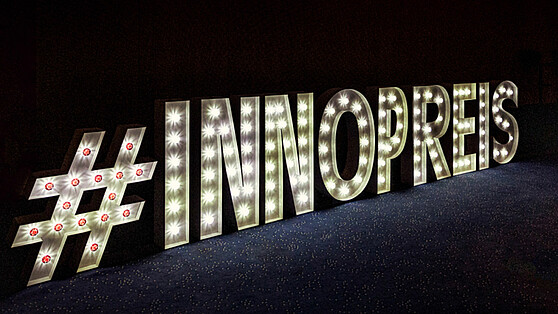 ©Agentur Medienlabor/Adam Sevens
Facts & EventsProducts, concepts and solutions are sought that exemplify the innovative capabilities and economic strength of the capital region. Companies based in…→
©Agentur Medienlabor/Adam Sevens
Facts & EventsProducts, concepts and solutions are sought that exemplify the innovative capabilities and economic strength of the capital region. Companies based in…→Berlin Brandenburg Innovation Award 2022: Apply by 4 July
-
Facts & Events
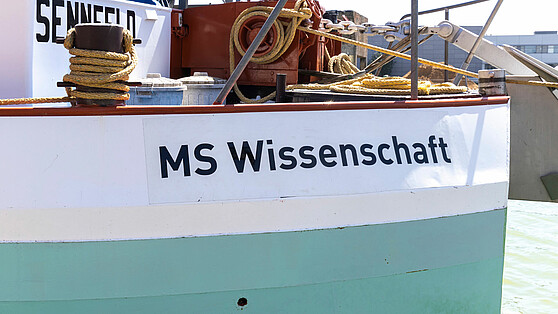 Photo: Heiner Witte/Wissenschaft im Dialog
Facts & EventsFull steam ahead! From 3 to 8 May, the ‘MS Wissenschaft’ will be anchoring at the Schiffbauerdamm in Brain City Berlin.→
Photo: Heiner Witte/Wissenschaft im Dialog
Facts & EventsFull steam ahead! From 3 to 8 May, the ‘MS Wissenschaft’ will be anchoring at the Schiffbauerdamm in Brain City Berlin.→Exhibition tip: MS Wissenschaft in Berlin
-
Facts & Events
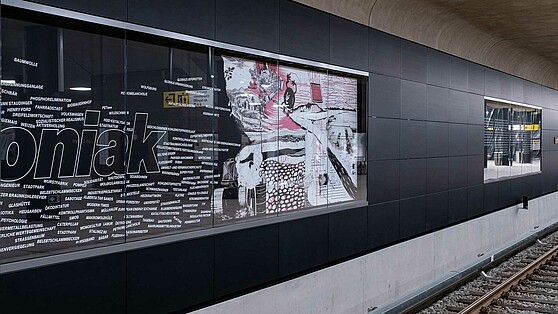 HU Berlin/Matthias Heyde
Facts & EventsDecipher research via hidden object pictures: Since March, the HU Berlin is offering guided tours through the “Bahnhof der Wissenschaften” (“Station…→
HU Berlin/Matthias Heyde
Facts & EventsDecipher research via hidden object pictures: Since March, the HU Berlin is offering guided tours through the “Bahnhof der Wissenschaften” (“Station…→Exhibition tip: Science Underground Tour
-
Transfer – Stories
 Photo: Ernestine von der Osten-Sacken (vdo)
Transfer – StoriesThe Charlottenburg Innovation Centre CHIC hosts around 50 start-ups. Situated at Brain City Berlin’s “Zukunftsort” Campus Charlottenburg, the CHIC…→
Photo: Ernestine von der Osten-Sacken (vdo)
Transfer – StoriesThe Charlottenburg Innovation Centre CHIC hosts around 50 start-ups. Situated at Brain City Berlin’s “Zukunftsort” Campus Charlottenburg, the CHIC…→CHIC - Business Incubator at a "Zukunftsort’"
-
Transfer – Stories
 Photo: Mall Anders/Matthew Crabbe
Transfer – Stories“Mall Anders” is an open learning laboratory which was launched by the FU Berlin, HU Berlin, TU Berlin and Charité – Universitätsmedizin Berlin in a…→
Photo: Mall Anders/Matthew Crabbe
Transfer – Stories“Mall Anders” is an open learning laboratory which was launched by the FU Berlin, HU Berlin, TU Berlin and Charité – Universitätsmedizin Berlin in a…→Science in a Shopping Centre
-
Transfer – Stories
 BHT/Martin Gasch
Transfer – StoriesInterview: Brain City Ambassador Dr-Ing. Ivo Boblan, Professor of the Humanoid Robotics Study Programme at the Berliner Hochschule für Technik, and…→
BHT/Martin Gasch
Transfer – StoriesInterview: Brain City Ambassador Dr-Ing. Ivo Boblan, Professor of the Humanoid Robotics Study Programme at the Berliner Hochschule für Technik, and…→“Robots Can Save us a Great Deal of Work”
-
Transfer – Stories
 (Left to right) Prof. Christian Matzdorf, Police commissioner Turgay Akkaya, Stefan Graf Finck von Finckenstein, Photo: HWR Berlin / Sylke Schumann
Transfer – StoriesPolice commissioner Turgay Akkaya has developed an anti-stalking app as part of his Bachelor’s project at the HWR Berlin. At the beginning of January…→
(Left to right) Prof. Christian Matzdorf, Police commissioner Turgay Akkaya, Stefan Graf Finck von Finckenstein, Photo: HWR Berlin / Sylke Schumann
Transfer – StoriesPolice commissioner Turgay Akkaya has developed an anti-stalking app as part of his Bachelor’s project at the HWR Berlin. At the beginning of January…→A Preventive App Against Stalking
-
Facts & Events
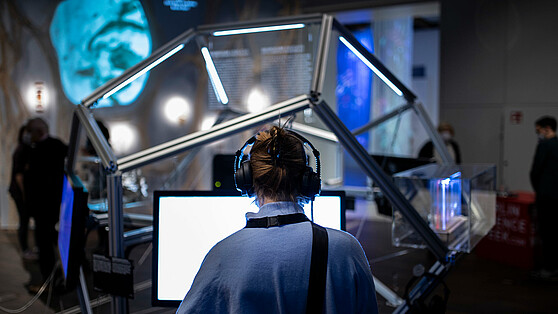 Photo: © Falling Walls Foundation
Facts & EventsWhether the Berlin Science Week, the Lange Nacht der Wissenschaften or the return of the dinosaur star Tristan Otto to Berlin: This year, the Brain…→
Photo: © Falling Walls Foundation
Facts & EventsWhether the Berlin Science Week, the Lange Nacht der Wissenschaften or the return of the dinosaur star Tristan Otto to Berlin: This year, the Brain…→Brain City Highlights 2022: Our Top 10
-
Facts & Events
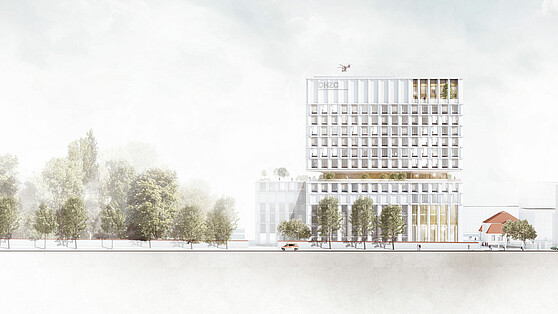 © wörner traxler richter planungsgesellschaft mbH
Facts & EventsThe Charité - Universitätsmedizin Berlin and the German Heart Center Berlin (DHZB) will pool their competencies from January 2023. By 2028, one of the…→
© wörner traxler richter planungsgesellschaft mbH
Facts & EventsThe Charité - Universitätsmedizin Berlin and the German Heart Center Berlin (DHZB) will pool their competencies from January 2023. By 2028, one of the…→New Heart Center for Berlin
-
Transfer – Stories
 (From left to right) Steffen Terberl/FU Berlin; Prof. Dr. Hannes Rothe/ICN Business School, photo: Ernestine von der Osten-Sacken
Transfer – StoriesIn the BioTech sector, the Berlin region is not making full use of its innovation potential. This is the conclusion of the “Deep Tech Futures Report…→
(From left to right) Steffen Terberl/FU Berlin; Prof. Dr. Hannes Rothe/ICN Business School, photo: Ernestine von der Osten-Sacken
Transfer – StoriesIn the BioTech sector, the Berlin region is not making full use of its innovation potential. This is the conclusion of the “Deep Tech Futures Report…→“BioTech does not get up and running on its own”
-
Facts & Events
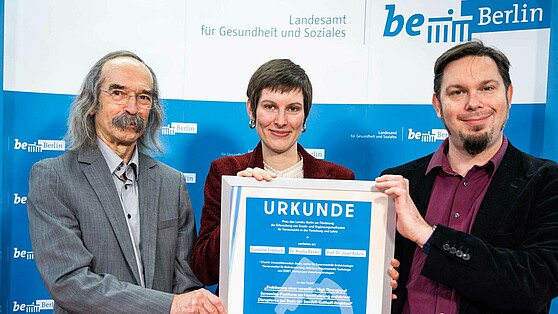 Photo: LAGeSo/Dirk Laessig
Facts & EventsCaroline Frädrich and Prof. Dr Josef Köhrle from the Institute of Experimental Endocrinology at the Charité – Universitätsmedizin Berlin along with Dr…→
Photo: LAGeSo/Dirk Laessig
Facts & EventsCaroline Frädrich and Prof. Dr Josef Köhrle from the Institute of Experimental Endocrinology at the Charité – Universitätsmedizin Berlin along with Dr…→“Berlin Research Award for Alternatives to Animal Experiments”: Award-winning Project by Charité and the BfR
-
Transfer – Stories
 Photo: Christina Lüdtke (private source)
Transfer – StoriesFour universities, one network: The network “Science & Startups” groups the start-up services of the universities united in the Berlin University…→
Photo: Christina Lüdtke (private source)
Transfer – StoriesFour universities, one network: The network “Science & Startups” groups the start-up services of the universities united in the Berlin University…→Wide-ranging Support for University Start-ups
-
Facts & Events
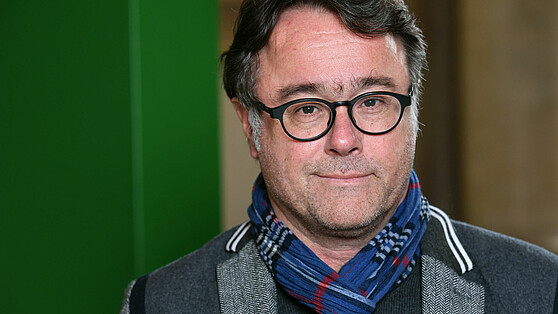 © WZB/David Ausserhofer
Facts & EventsThe political scientist Michael Zürn has been awarded the Berliner Wissenschaftspreis 2021. The Nachwuchspreis went to the theologian Mira Sievers.→
© WZB/David Ausserhofer
Facts & EventsThe political scientist Michael Zürn has been awarded the Berliner Wissenschaftspreis 2021. The Nachwuchspreis went to the theologian Mira Sievers.→Berliner Wissenschaftspreis 2021 for Michael Zürn
-
Transfer – Stories
 Photo: private
Transfer – StoriesA guest contribution by Brain City Ambassador Dr. Anna Klippstein, professor of finance and Eliyahu Mätzschker, student at Touro College Berlin.→
Photo: private
Transfer – StoriesA guest contribution by Brain City Ambassador Dr. Anna Klippstein, professor of finance and Eliyahu Mätzschker, student at Touro College Berlin.→The Pandemic and its Impact on the Capital Market
-
Facts & Events
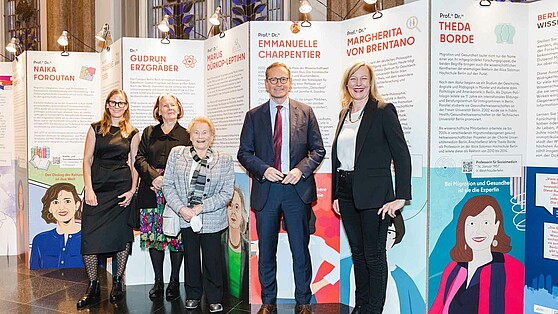 Prof. Claudia Langenberg; Prof. Marlis Dürkop-Leptihn; Prof. Gudrun Erzgräber, der Regierende Bürgermeister Michael Müller und Prof. Gesche Joost (v. li. n. re.), Foto: BIH/Konstantin Börner
Facts & EventsEmmanuelle Charpentier, Lise Meitner, Cécile Vogt – an exhibition in the Rotes Rathaus presents 20 women pioneers from Brain City Berlin – and thereby…→
Prof. Claudia Langenberg; Prof. Marlis Dürkop-Leptihn; Prof. Gudrun Erzgräber, der Regierende Bürgermeister Michael Müller und Prof. Gesche Joost (v. li. n. re.), Foto: BIH/Konstantin Börner
Facts & EventsEmmanuelle Charpentier, Lise Meitner, Cécile Vogt – an exhibition in the Rotes Rathaus presents 20 women pioneers from Brain City Berlin – and thereby…→Exhibition: “Berlin – Capital of Women Scientists”
-
Facts & Events
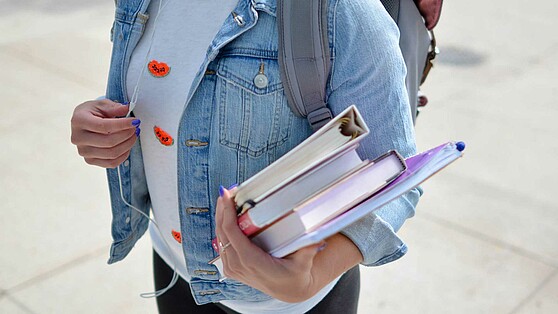 Credit: Element5 Digital on Unsplash
Facts & EventsFor three semesters, teaching and studying in the Brain City Berlin took place predominantly online. The lecture halls, seminar rooms, laboratories…→
Credit: Element5 Digital on Unsplash
Facts & EventsFor three semesters, teaching and studying in the Brain City Berlin took place predominantly online. The lecture halls, seminar rooms, laboratories…→Good Prerequisites: Semester Start 2021/22
-
Facts & Events
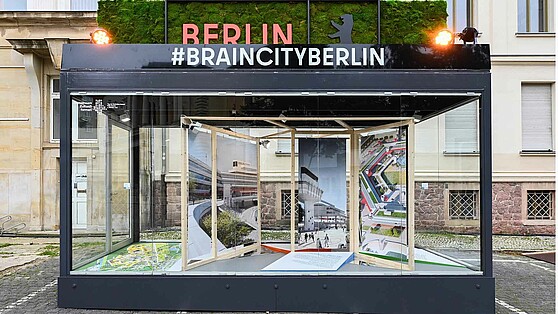 Credit: Tag der Deutschen Einheit Halle (Saale)
Facts & EventsOn 3 October, Brain City Berlin will be represented with the “Berlin Cube” at the EinheitsEXPO in Saxony-Anhalt.→
Credit: Tag der Deutschen Einheit Halle (Saale)
Facts & EventsOn 3 October, Brain City Berlin will be represented with the “Berlin Cube” at the EinheitsEXPO in Saxony-Anhalt.→#BRAINCITYBERLIN at the Day of German Unity
-
Transfer – Stories
 Credit: André Bakker
Transfer – StoriesA guest contribution by Brain City Ambassador Prof. Dr Anabel Ternès von Hattburg, Professor for International Business Administration at the SRH…→
Credit: André Bakker
Transfer – StoriesA guest contribution by Brain City Ambassador Prof. Dr Anabel Ternès von Hattburg, Professor for International Business Administration at the SRH…→Getting on Board with Digitality
-
Transfer – Stories
 Swen Hutter (Foto: David Ausserhofer), Gesine Höltmann (Foto: Martina Sander)
Transfer – StoriesA guest contribution by Gesine Höltmann, research assistant and Swen Hutter, Deputy Director at the Centre for Civil Society Research.→
Swen Hutter (Foto: David Ausserhofer), Gesine Höltmann (Foto: Martina Sander)
Transfer – StoriesA guest contribution by Gesine Höltmann, research assistant and Swen Hutter, Deputy Director at the Centre for Civil Society Research.→Polarisation and Cohesion in the Corona Crisis: a Look at Civil Society
-
Transfer – Stories
 Foto: "Lucid Dream", Elena Kunau and Mariya Yordanova
Transfer – StoriesARTIFICIAL REALITY – VIRTUAL INTELLIGENCE is the name of an exhibition that can be seen from 8 to 12 September as part of Ars Electronica Garden…→
Foto: "Lucid Dream", Elena Kunau and Mariya Yordanova
Transfer – StoriesARTIFICIAL REALITY – VIRTUAL INTELLIGENCE is the name of an exhibition that can be seen from 8 to 12 September as part of Ars Electronica Garden…→Interaction via Emotion
-
Facts & Events
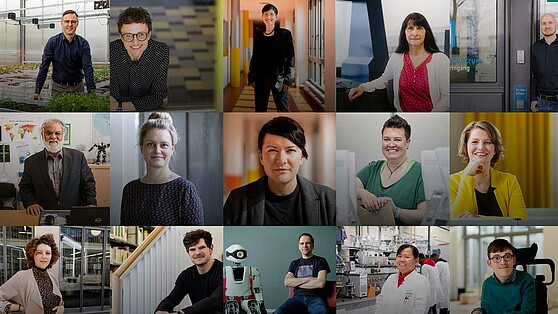 Facts & EventsThe Berlin universities of applied sciences – four State and two denominational – are celebrating their anniversaries. On the occasion of the joint…→
Facts & EventsThe Berlin universities of applied sciences – four State and two denominational – are celebrating their anniversaries. On the occasion of the joint…→50 Years – 50 Stories
-
Facts & Events
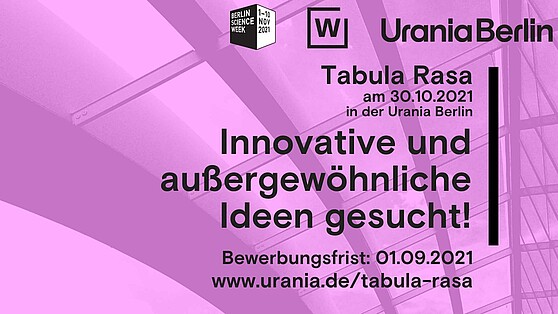 Facts & EventsWith the science fair “Tabula rasa - Science you can touch”, Urania Berlin offers 40 young scientists a public forum. The application deadline is 1…→
Facts & EventsWith the science fair “Tabula rasa - Science you can touch”, Urania Berlin offers 40 young scientists a public forum. The application deadline is 1…→Wanted: innovative and creative ideas from science and research!
-
Facts & Events
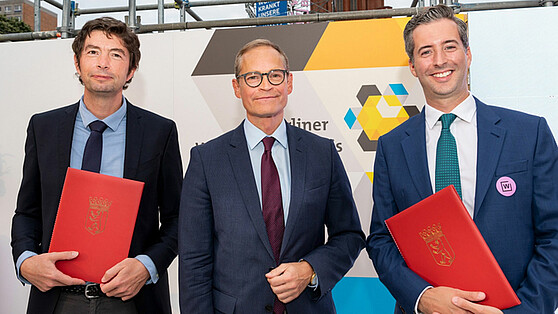 Credit: Lars Hübner
Facts & EventsBrain City Ambassador Professor Dr. Christian Drosten has been awarded the Berliner Wissenschaftspreis 2020 for his outstanding research achievements.…→
Credit: Lars Hübner
Facts & EventsBrain City Ambassador Professor Dr. Christian Drosten has been awarded the Berliner Wissenschaftspreis 2020 for his outstanding research achievements.…→Berliner Wissenschaftspreis 2020 for Christian Drosten
-
Facts & Events
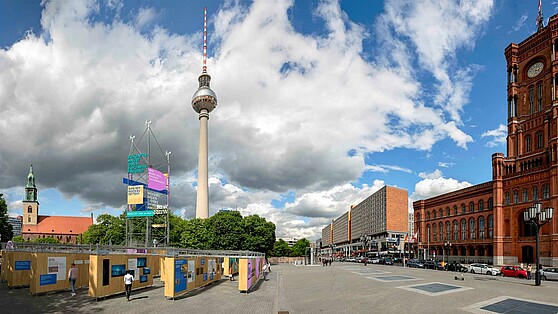 Credit: Harf Zimmermann/3-D-Visualisierung: Tonio Freitag
Facts & EventsBerlin celebrates science. We’ve put together a few highlights for you.→
Credit: Harf Zimmermann/3-D-Visualisierung: Tonio Freitag
Facts & EventsBerlin celebrates science. We’ve put together a few highlights for you.→"Wissensstadt Berlin 2021" – Our Top 10 Events
-
Transfer – Stories
 Credit: Peter Himsel/Campus Berlin-Buch GmbH
Transfer – StoriesThe Campus Berlin-Buch in the north of Brain City Berlin has grown to become one of Europe’s largest business and research centres for life sciences.→
Credit: Peter Himsel/Campus Berlin-Buch GmbH
Transfer – StoriesThe Campus Berlin-Buch in the north of Brain City Berlin has grown to become one of Europe’s largest business and research centres for life sciences.→A Vibrant Healthcare Network
-
Transfer – Stories
 Credit: Markus Krutzik
Transfer – StoriesDr. Markus Krutzik, Head of the Joint Lab Integrated Quantum Sensors (IQS), on the "Wissenschaft trifft Wirtschaft" (Science Meets Business") event…→
Credit: Markus Krutzik
Transfer – StoriesDr. Markus Krutzik, Head of the Joint Lab Integrated Quantum Sensors (IQS), on the "Wissenschaft trifft Wirtschaft" (Science Meets Business") event…→"I am Fascinated by the Possibilities of Quantum Sensors"
-
Facts & Events
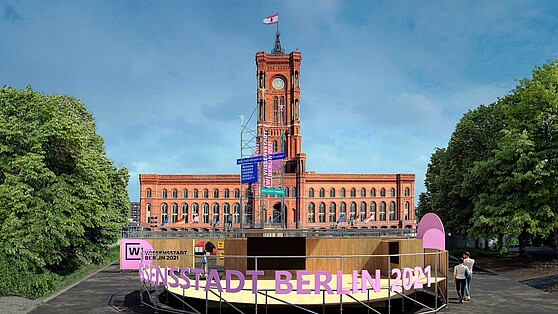 Foto: @Harf Zimmermann, 3-D-Visualisierung@ Tonio Freitag
Facts & Events“Berlin wants to know”: “Wissensstadt Berlin 2021” is getting underway with a large open-air exhibition in front of the Rotes Rathaus.→
Foto: @Harf Zimmermann, 3-D-Visualisierung@ Tonio Freitag
Facts & Events“Berlin wants to know”: “Wissensstadt Berlin 2021” is getting underway with a large open-air exhibition in front of the Rotes Rathaus.→“Wissensstadt Berlin 2021” – Festival of Research
-
Transfer – Stories
 Foto: ESCP Business School Berlin
Transfer – StoriesWhat to do when distance is suddenly the order of the day? A guest contribution by Dr. René Mauer, Professor of Entrepreneurship und Innovation at…→
Foto: ESCP Business School Berlin
Transfer – StoriesWhat to do when distance is suddenly the order of the day? A guest contribution by Dr. René Mauer, Professor of Entrepreneurship und Innovation at…→Using Whiteboards to Combat Digital Fatigue
-
Facts & Events
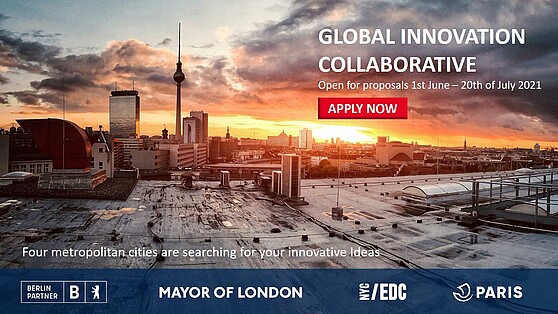 Facts & EventsAs part of the “Creative Cities Challenge”, the “Global Innovation Collaborative” is now looking for innovative solutions that will contribute to the…→
Facts & EventsAs part of the “Creative Cities Challenge”, the “Global Innovation Collaborative” is now looking for innovative solutions that will contribute to the…→Apply until August 3: Call for Competition Entries “Creative Cities Challenge 2021”
-
Transfer – Stories
 Credit: Alexander Rentsch/HTW Berlin
Transfer – StoriesBrain City Ambassador Prof. Dr. Florian Koch of HTW Berlin brings together science, business and civil society in his research.→
Credit: Alexander Rentsch/HTW Berlin
Transfer – StoriesBrain City Ambassador Prof. Dr. Florian Koch of HTW Berlin brings together science, business and civil society in his research.→“Increasing Urbanisation also Creates Opportunities”
-
Facts & Events
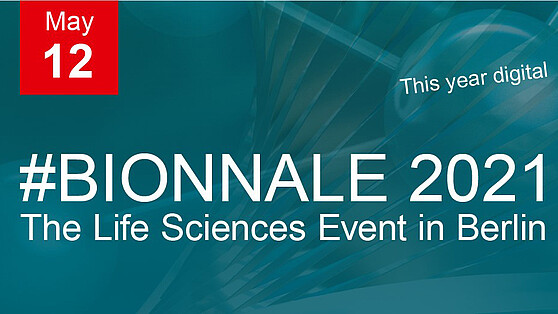 Facts & EventsCurrent technological developments in the field of life sciences, exchanges and networking will be the focus of BIONNALE on 12 May.→
Facts & EventsCurrent technological developments in the field of life sciences, exchanges and networking will be the focus of BIONNALE on 12 May.→BIONNALE 2021 – register now!
-
Facts & Events
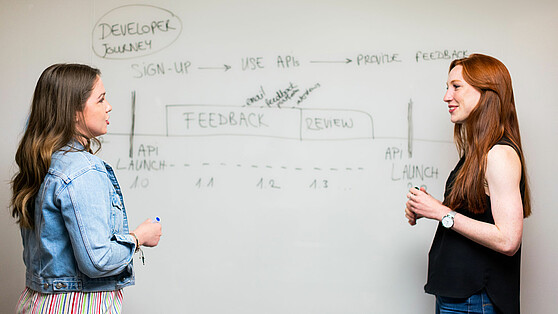 Credit: ThisisEngeneering RAEng on Unsplash
Facts & EventsIt is considered to be one of the most important instruments of Berlin's higher education equality policy: the “Berliner Chancengleichheitsprogramm”…→
Credit: ThisisEngeneering RAEng on Unsplash
Facts & EventsIt is considered to be one of the most important instruments of Berlin's higher education equality policy: the “Berliner Chancengleichheitsprogramm”…→Berlin Equal Opportunities Programme: 6 more years
-
Transfer – Stories
 Credit: Rudolf Grillborzer
Transfer – StoriesGuest contribution by Brain City Ambassador Dr.-Ing. Onur Günlü, Technische Universität Berlin.→
Credit: Rudolf Grillborzer
Transfer – StoriesGuest contribution by Brain City Ambassador Dr.-Ing. Onur Günlü, Technische Universität Berlin.→Exploring the "ultimate limits"
-
Transfer – Stories
 Credt: Startup Incubator Berlin
Transfer – StoriesThe Startup Incubator Berlin at the Berlin School of Economics and Law is particularly successful in supporting founder teams – as proved by the fact…→
Credt: Startup Incubator Berlin
Transfer – StoriesThe Startup Incubator Berlin at the Berlin School of Economics and Law is particularly successful in supporting founder teams – as proved by the fact…→“We Bring Ideas to Market”
-
Transfer – Stories
 Credit: Mimi Thian on Unsolash
Transfer – StoriesGuest Contribution by Brain City Ambassador Dr. Petyo Budakov, University of Europe for Applied Sciences.→
Credit: Mimi Thian on Unsolash
Transfer – StoriesGuest Contribution by Brain City Ambassador Dr. Petyo Budakov, University of Europe for Applied Sciences.→“Proudly presenting Brain City Berlin in 2020”
-
Facts & Events
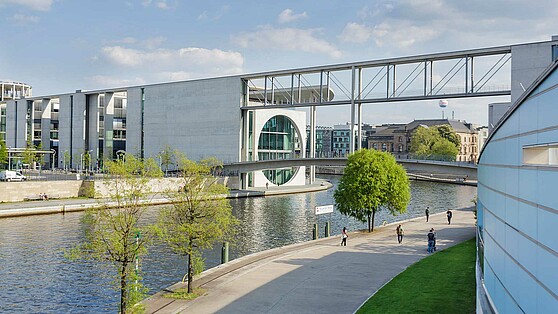 Credit: Berlin Partner/Wüstenhagen
Facts & EventsThe online event “Redefining the Smart City” on 23 and 24 March is inviting international researchers and Smart City experts to various workshops.The…→
Credit: Berlin Partner/Wüstenhagen
Facts & EventsThe online event “Redefining the Smart City” on 23 and 24 March is inviting international researchers and Smart City experts to various workshops.The…→International symposium on the subject of Smart Cities
-
Transfer – Stories
 Susanne Plaumann (private)
Transfer – StoriesInterview with Brain City Ambassador Susanne Plaumann M.A., Central women's representative at the Beuth University of Applied Sciences Berlin.→
Susanne Plaumann (private)
Transfer – StoriesInterview with Brain City Ambassador Susanne Plaumann M.A., Central women's representative at the Beuth University of Applied Sciences Berlin.→“Careers are now easier to plan for women scientists”
-
Transfer – Stories
 Adi Goldstein auf Unsplash
Transfer – StoriesStadtManufaktur Berlin conceptually unites research projects of the TU Berlin under a single roof. The long-term goal of this “open laboratory…→
Adi Goldstein auf Unsplash
Transfer – StoriesStadtManufaktur Berlin conceptually unites research projects of the TU Berlin under a single roof. The long-term goal of this “open laboratory…→Science in Dialogue with the City
-
Transfer – Stories
 Falk Weiß
Transfer – StoriesThe knowledge portal “humboldts17” presents current research on the subject of sustainability and welcomes open dialogue with the general public. The…→
Falk Weiß
Transfer – StoriesThe knowledge portal “humboldts17” presents current research on the subject of sustainability and welcomes open dialogue with the general public. The…→17 Goals for the Future
-
Transfer – Stories
 Foto: Olga Makarova privat
Transfer – StoriesBrain City Ambassador Olga Makarova reflects on being a microbiologist during the pandemic, and the urgent need for microbiology literacy in society.→
Foto: Olga Makarova privat
Transfer – StoriesBrain City Ambassador Olga Makarova reflects on being a microbiologist during the pandemic, and the urgent need for microbiology literacy in society.→Guest Contribution: COVID-19 and microbiology literacy
-
Transfer – Stories
 HIIG
Transfer – StoriesBrain City-Interview with Prof. Dr. Wolfgang Schulz, Research Director at the Alexander von Humboldt Institute for Internet and Society (HIIG).→
HIIG
Transfer – StoriesBrain City-Interview with Prof. Dr. Wolfgang Schulz, Research Director at the Alexander von Humboldt Institute for Internet and Society (HIIG).→“A sustainable goal of our work is to make clear what the technology can actually do”
-
Facts & Events
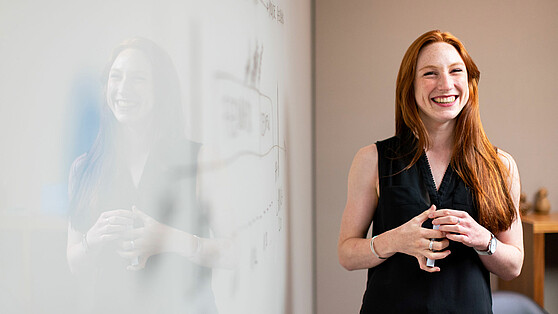 ThisisEngineering RAEng on Unsplash
Facts & EventsBerlin universities are above the national average in terms of equality. In 2020, the state universities in the Brain City Berlin filled around half…→
ThisisEngineering RAEng on Unsplash
Facts & EventsBerlin universities are above the national average in terms of equality. In 2020, the state universities in the Brain City Berlin filled around half…→Capital of Female Professors
-
Facts & Events
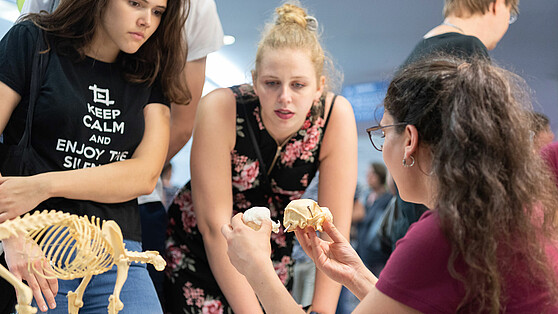 FU Berlin © Stephan Niespodziany, www.rejoyce.berlin
Facts & EventsDigital, hybrid, or live in-person: in 2021, events in the Brain City Berlin will still be shaped by the restrictions of the coronavirus pandemic.…→
FU Berlin © Stephan Niespodziany, www.rejoyce.berlin
Facts & EventsDigital, hybrid, or live in-person: in 2021, events in the Brain City Berlin will still be shaped by the restrictions of the coronavirus pandemic.…→Brain City Berlin: Top 10 Events in 2021
-
Facts & Events
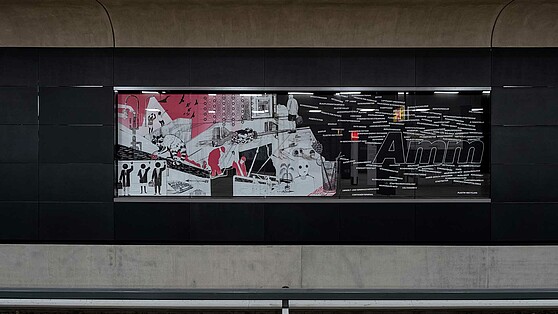 Matthias Heyde, HU Berlin
Facts & EventsThe new Unter den Linden underground station is currently teeming with science. An exhibition organised by the Humboldt-Universität zu Berlin shows…→
Matthias Heyde, HU Berlin
Facts & EventsThe new Unter den Linden underground station is currently teeming with science. An exhibition organised by the Humboldt-Universität zu Berlin shows…→Exhibition tip: Science Underground
-
Facts & Events
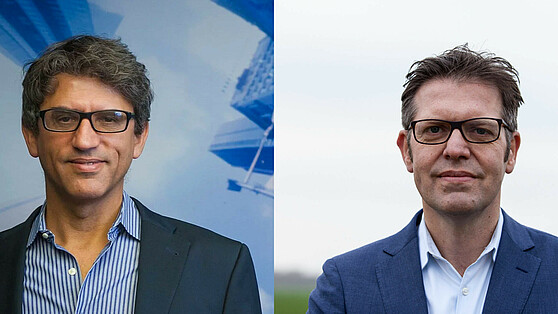 left: TU Berlin, Pressestelle / right: Marten Körner
Facts & EventsSeveral researchers in Brain City Berlin have recently received top-class prize grants. Gottfried Wilhelm Leibniz Prizes were awarded to Prof. Dr…→
left: TU Berlin, Pressestelle / right: Marten Körner
Facts & EventsSeveral researchers in Brain City Berlin have recently received top-class prize grants. Gottfried Wilhelm Leibniz Prizes were awarded to Prof. Dr…→7 research awards for Berlin scientists
-
Transfer – Stories
 HTW Berlin
Transfer – StoriesAn interview with Brain City Ambassador Prof. Dr. Kai Reinhardt. On October 28, he will be speaking at the second SpreeTalk at HTW University of…→
HTW Berlin
Transfer – StoriesAn interview with Brain City Ambassador Prof. Dr. Kai Reinhardt. On October 28, he will be speaking at the second SpreeTalk at HTW University of…→“The pandemic has been a catalyst for digitalization”
-
Facts & Events
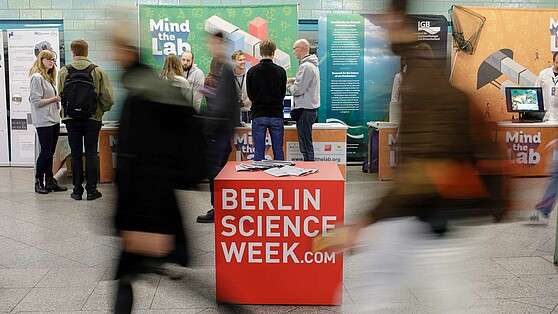 Berlin Science Week
Facts & EventsWith more than 200 events and over 500 speakers, this year’s Berlin Science Week is bigger than ever before. However, the 2020 edition of the…→
Berlin Science Week
Facts & EventsWith more than 200 events and over 500 speakers, this year’s Berlin Science Week is bigger than ever before. However, the 2020 edition of the…→Berlin Science Week 2020 – Digital and Global
-
Facts & Events
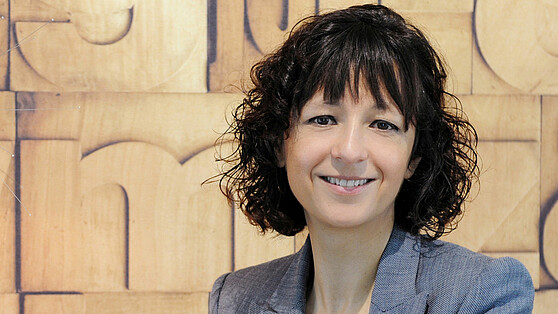 MPG © Hallbauer und Fioretti
Facts & EventsThe Royal Swedish Academy of Sciences has given top Berlin researcher Professor Dr Emmanuelle Charpentier and American Professor Dr Jennifer A. Doudna…→
MPG © Hallbauer und Fioretti
Facts & EventsThe Royal Swedish Academy of Sciences has given top Berlin researcher Professor Dr Emmanuelle Charpentier and American Professor Dr Jennifer A. Doudna…→2020 Nobel Prize in Chemistry goes to Emmanuelle Charpentier: Congratulations!
-
Transfer – Stories
 dentalXr.ai
Transfer – StoriesdentalXrai is the first dental start-up to be spun off the Charité. It was launched via the accelerator of the Berlin Institute of Health (BIH). We…→
dentalXr.ai
Transfer – StoriesdentalXrai is the first dental start-up to be spun off the Charité. It was launched via the accelerator of the Berlin Institute of Health (BIH). We…→Artificial intelligence in the fight against tooth decay
-
Transfer – Stories
 Anna Raysyan (private)
Transfer – StoriesBrain City Ambassador Anna Raysyan has been living in Berlin for 3,5 years now. She is a PhD student at the Bundesanstalt für Materialforschung und…→
Anna Raysyan (private)
Transfer – StoriesBrain City Ambassador Anna Raysyan has been living in Berlin for 3,5 years now. She is a PhD student at the Bundesanstalt für Materialforschung und…→Guest Contribution: “Berlin likes the bold!”
-
Facts & Events
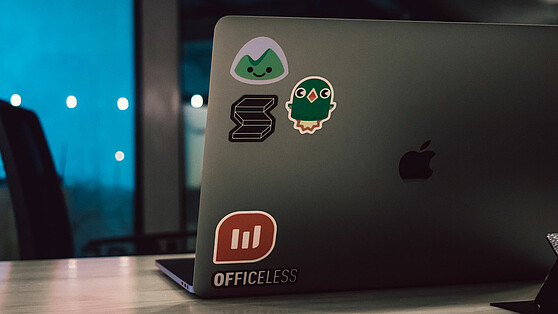 ©Mario Gogh/Unsplash
Facts & EventsStart-ups arising from research being done at Berlin's universities are of major importance for the region's economy. As the “Gruendungsumfrage 2020”…→
©Mario Gogh/Unsplash
Facts & EventsStart-ups arising from research being done at Berlin's universities are of major importance for the region's economy. As the “Gruendungsumfrage 2020”…→Academic start-ups strengthen Berlin's economy
-
Transfer – Stories
 ©Berlin Partner für Wirtschaft und Technologie
Transfer – StoriesMany top-class researchers and scientists are being attracted to Brain City Berlin every year. The Dual Career Network Berlin helps partners of…→
©Berlin Partner für Wirtschaft und Technologie
Transfer – StoriesMany top-class researchers and scientists are being attracted to Brain City Berlin every year. The Dual Career Network Berlin helps partners of…→Dual Career Network Berlin: getting a good start in Berlin
-
Facts & Events
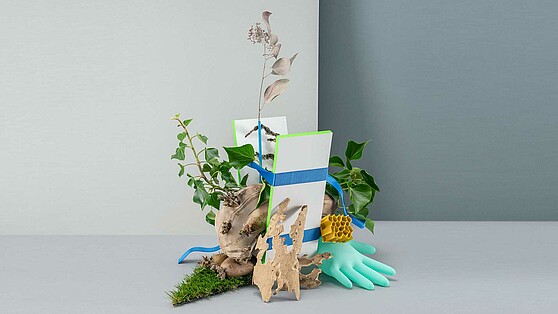 ©Samuel Henne
Facts & EventsThe exhibition MACHT NATUR at STATE Studio in Berlin focuses on the discomfort that many of us experience when faced with human intervention in…→
©Samuel Henne
Facts & EventsThe exhibition MACHT NATUR at STATE Studio in Berlin focuses on the discomfort that many of us experience when faced with human intervention in…→MACHT NATUR: an exhibition that asks questions
-
Transfer – Stories
 ©Matthias Picket
Transfer – StoriesDr. Anne Schreiter, Managing Director of the German Scholars Organization (GSO), reveals in the Brain City interview what alternative career…→
©Matthias Picket
Transfer – StoriesDr. Anne Schreiter, Managing Director of the German Scholars Organization (GSO), reveals in the Brain City interview what alternative career…→"Science is not just about research"
-
Transfer – Stories
 © Pocky Lee on Unsplash
Transfer – StoriesMatches in front of empty stadiums, virtual marathons, and many postponed events. Brain City Ambassador Professor Gabriele Mielke is tracking the…→
© Pocky Lee on Unsplash
Transfer – StoriesMatches in front of empty stadiums, virtual marathons, and many postponed events. Brain City Ambassador Professor Gabriele Mielke is tracking the…→"Now is the time for innovators"
-
Facts & Events
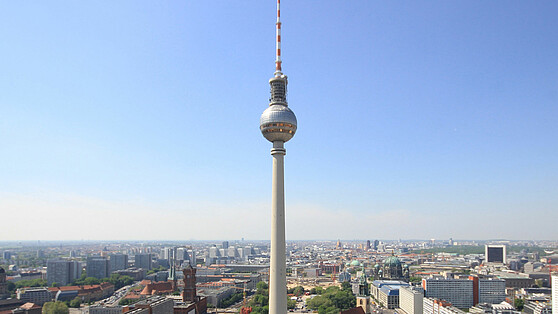 ©visitBerlin/Sarah Lindemann
Facts & EventsReal-world Laboratories are bringing scientists together with practitioners to develop solutions to the questions of tomorrow in an experimental…→
©visitBerlin/Sarah Lindemann
Facts & EventsReal-world Laboratories are bringing scientists together with practitioners to develop solutions to the questions of tomorrow in an experimental…→The "StadtManufaktur Berlin" Exhibition: experiments to create a city worth living in
-
Transfer – Stories
 © AW Creative on Unsplash
Transfer – StoriesJuggling a degree course or teaching with the extra burden of the care of children or other family members is not an easy task. Both students and…→
© AW Creative on Unsplash
Transfer – StoriesJuggling a degree course or teaching with the extra burden of the care of children or other family members is not an easy task. Both students and…→From “Zoo School” to “Maternity Protection”: family-friendly universities
-
Transfer – Stories
 © HTW Berlin / Nikolas Fahlbusch
Transfer – StoriesTeaching is currently only taking place online. Guest author Dr Dorothee Haffner, professor for Museology at HTW Berlin - University of Applied…→
© HTW Berlin / Nikolas Fahlbusch
Transfer – StoriesTeaching is currently only taking place online. Guest author Dr Dorothee Haffner, professor for Museology at HTW Berlin - University of Applied…→Guest contribution: "Online teaching is more engaging than I thought"
-
Transfer – Stories
 Franziska Sattler
Transfer – StoriesIn the interview: Brain City ambassador Franziska Sattler on her series of events "Kaffeeklatsch mit Wissenschaft" (Talking Science over Coffee) at…→
Franziska Sattler
Transfer – StoriesIn the interview: Brain City ambassador Franziska Sattler on her series of events "Kaffeeklatsch mit Wissenschaft" (Talking Science over Coffee) at…→"Science needs the trust of society"
-
Facts & Events
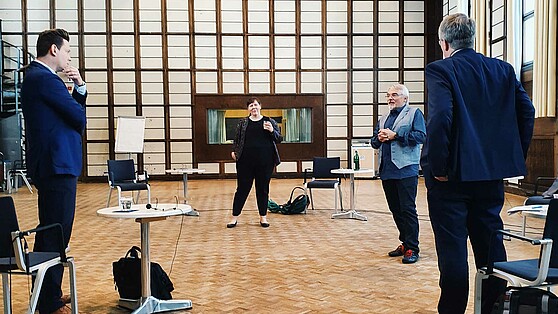 LNDW/Irmisch
Facts & EventsThe Long Night of Sciences (Lange Nacht der Wissenschaften) has long been one of the highlights of the Brain City Berlin event calendar every June.…→
LNDW/Irmisch
Facts & EventsThe Long Night of Sciences (Lange Nacht der Wissenschaften) has long been one of the highlights of the Brain City Berlin event calendar every June.…→Long Night of the Sciences: this year as a podcast series
-
Facts & Events
![[Translate to English:] ©Fotowerk – AdobeStock [Translate to English:] Pflegerein mit Senior](/fileadmin/_processed_/0/7/csm_1920x1080xFotolia_62765109_XXL_drubig-photo_0aa30ba456.jpg) [Translate to English:] ©Fotowerk – AdobeStock
Facts & EventsThree new health care courses will start in the winter semester 2020/21 at the Alice Salomon Hochschule Berlin (ASH Berlin).→
[Translate to English:] ©Fotowerk – AdobeStock
Facts & EventsThree new health care courses will start in the winter semester 2020/21 at the Alice Salomon Hochschule Berlin (ASH Berlin).→Apply now - 3 new health degree courses at the ASH Berlin
-
Facts & Events
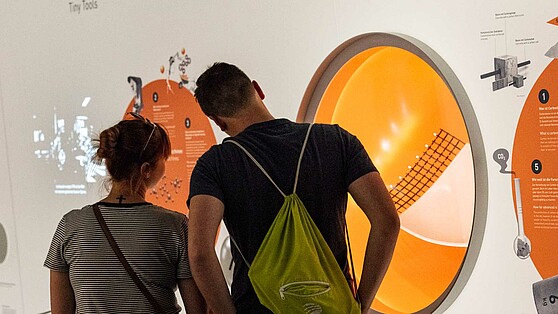 © Futurium/Ali Ghandtschi
Facts & EventsFor all those who have not yet planned anything specific for the weekend - here are a few tips from the Brain City editorial team combining leisure…→
© Futurium/Ali Ghandtschi
Facts & EventsFor all those who have not yet planned anything specific for the weekend - here are a few tips from the Brain City editorial team combining leisure…→5 tips: Weekend in Brain City Berlin
-
Transfer – Stories
 Fotocredit: Ortner & Ortner / Siemens
Transfer – StoriesSiemensstadt 2.0 is a place of the future. The Berlin Senate has approved 9.9 million euros for the first research project "Electrical Drive…→
Fotocredit: Ortner & Ortner / Siemens
Transfer – StoriesSiemensstadt 2.0 is a place of the future. The Berlin Senate has approved 9.9 million euros for the first research project "Electrical Drive…→Siemensstadt 2.0: Research and industry closely linked
-
Facts & Events
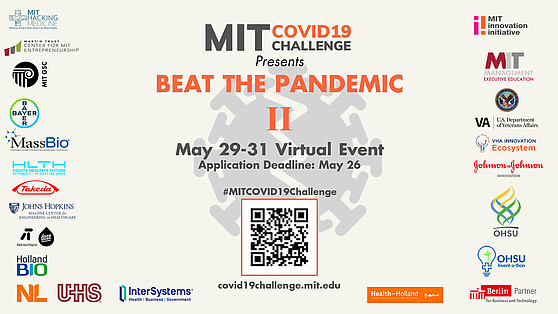 Fotocredit: #MIT Covid-19 Challenge
Facts & EventsApply for the #MIT Hackathon "Beat the Pandemic II" until 26 May! Experts from different fields are sought.→
Fotocredit: #MIT Covid-19 Challenge
Facts & EventsApply for the #MIT Hackathon "Beat the Pandemic II" until 26 May! Experts from different fields are sought.→"Beat the Pandemic II": Join the MIT COVID-19 Challenge
-
Facts & Events
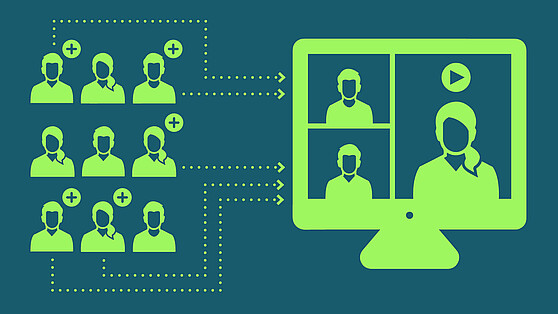 ©BIT6
Facts & EventsThe Coronvirusa crisis poses great challenges, especially for small and medium-sized companies. On 20 May, scientific experts will speak all day in…→
©BIT6
Facts & EventsThe Coronvirusa crisis poses great challenges, especially for small and medium-sized companies. On 20 May, scientific experts will speak all day in…→TRAO – digital transfer day on the 20th of May
-
Facts & Events
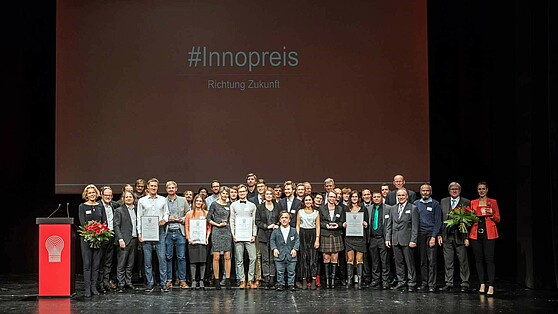 ©Paul Hahn Photography
Facts & EventsBerlin's Senator for Economics, Ramona Pop, and Brandenburg's Minister of Economic Affairs, Jörgs Steinbach, have once again announced the search for…→
©Paul Hahn Photography
Facts & EventsBerlin's Senator for Economics, Ramona Pop, and Brandenburg's Minister of Economic Affairs, Jörgs Steinbach, have once again announced the search for…→2020 Innovation Award: Apply by 22th June!
-
Transfer – Stories
 ©Credit Silke Oßwald/FMP
Transfer – StoriesBrain City interview: Professor Dr. Volker Haucke, Director at the Leibniz-Forschungsinstitut für Molekulare Pharmakologie (FMP) and Professor of…→
©Credit Silke Oßwald/FMP
Transfer – StoriesBrain City interview: Professor Dr. Volker Haucke, Director at the Leibniz-Forschungsinstitut für Molekulare Pharmakologie (FMP) and Professor of…→In the balancing act between detail and overall concept
-
Transfer – Stories
 © hj barraza/Unsplash
Transfer – StoriesOur guest author Dr Barbara Schäuble is Professor for Diversity-Conscious Approaches in the Theory and Practice of Social Work at ASH Berlin and a…→
© hj barraza/Unsplash
Transfer – StoriesOur guest author Dr Barbara Schäuble is Professor for Diversity-Conscious Approaches in the Theory and Practice of Social Work at ASH Berlin and a…→Guest contribution: A sudden change of course - classes moved online
-
Facts & Events
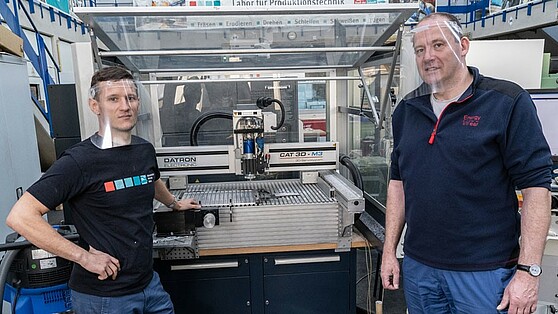 © Beuth Hochschule / Karsten Flügel
Facts & EventsBuildings, lecture halls and laboratories in the Brain City Berlin are currently closed to students, teachers and researchers due to the corona…→
© Beuth Hochschule / Karsten Flügel
Facts & EventsBuildings, lecture halls and laboratories in the Brain City Berlin are currently closed to students, teachers and researchers due to the corona…→COVID-19: Berlin universities are helping
-
Transfer – Stories
 ©DexLeChem
Transfer – StoriesLaunching a start-up while at university? Sonja Jost's success shows the way. Together with three fellow students, she founded DexLeChem after…→
©DexLeChem
Transfer – StoriesLaunching a start-up while at university? Sonja Jost's success shows the way. Together with three fellow students, she founded DexLeChem after…→"Bringing new knowledge to the market is very important to us"
-
Facts & Events
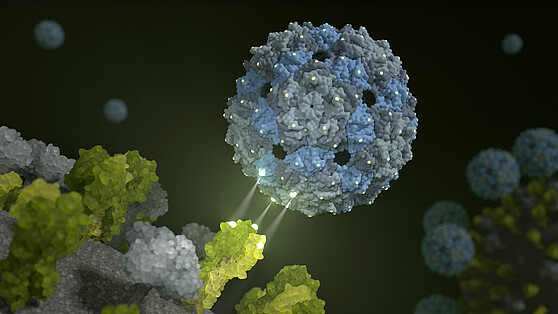 ©FMP/ Barth van Rossum
Facts & EventsUsing viruses against influenza, avian flu - and maybe soon also against Corona? An alliance of scientists from the Leibniz-Forschungsinstitut für…→
©FMP/ Barth van Rossum
Facts & EventsUsing viruses against influenza, avian flu - and maybe soon also against Corona? An alliance of scientists from the Leibniz-Forschungsinstitut für…→Berlin research alliance develops influenza inhibitor
-
Facts & Events
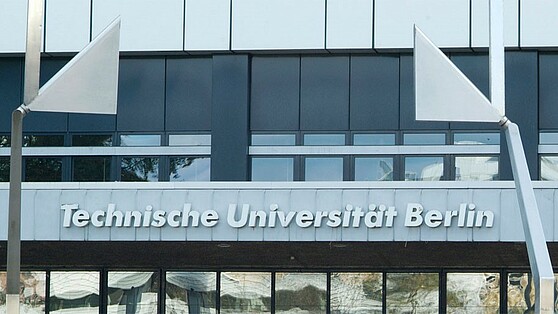 ©TU Berlin Pressestelle / Dahl
Facts & EventsThe coronavirus pandemic carries many risks, not only for individuals, but also for society. But how are the risks being perceived? And how are people…→
©TU Berlin Pressestelle / Dahl
Facts & EventsThe coronavirus pandemic carries many risks, not only for individuals, but also for society. But how are the risks being perceived? And how are people…→Risk perception in the coronavirus crisis: a survey from TU Berlin
-
Transfer – Stories
 ©Ivar Veermäe / Centre for Entrepreneurship
Transfer – StoriesBrain City Berlin is the German capital of start-ups. Many young companies have successfully been founded through Berlin and Brandenburg based…→
©Ivar Veermäe / Centre for Entrepreneurship
Transfer – StoriesBrain City Berlin is the German capital of start-ups. Many young companies have successfully been founded through Berlin and Brandenburg based…→"Society in particular benefits from high-tech start-ups" - university survey enters its third round
-
Facts & Events
![[Translate to English:] ©Marcel/Unsplash [Translate to English:] Fledermaus Grafiti](/fileadmin/_processed_/f/a/csm_1920x1080-fledermaus-marcel-unsplash_1ee08293c8.jpg) [Translate to English:] ©Marcel/Unsplash
Facts & EventsBe it the greater mouse-eared bat, the brown long-eared bat, the serotine bat or the common noctule – bats feel particularly at home in Berlin. 18 of…→
[Translate to English:] ©Marcel/Unsplash
Facts & EventsBe it the greater mouse-eared bat, the brown long-eared bat, the serotine bat or the common noctule – bats feel particularly at home in Berlin. 18 of…→Until 8th of March: Bat Capital seeks hobby researchers
-
Transfer – Stories
 ©BIH|Thomas Rafalzyk
Transfer – StoriesAt the Berlin Institute of Health (BIH) the main focus is on "translational research" - the transfer of findings from the research lab into clinical…→
©BIH|Thomas Rafalzyk
Transfer – StoriesAt the Berlin Institute of Health (BIH) the main focus is on "translational research" - the transfer of findings from the research lab into clinical…→“There are now many great female scientists, achieving great things”
-
Transfer – Stories
 ©fotografixx - istockphoto.com
Transfer – StoriesIn the digital age learning behaviour changes profoundly. It is student-centered and technology rich. As a member of the Erasmus+ funded project…→
©fotografixx - istockphoto.com
Transfer – StoriesIn the digital age learning behaviour changes profoundly. It is student-centered and technology rich. As a member of the Erasmus+ funded project…→Exploring the future of learning
-
Facts & Events
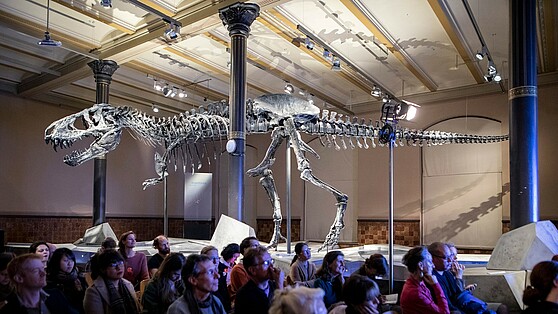 © Falling Walls Foundation
Facts & EventsWhether it is Berlin Science Week, Long Night of the Sciences or the Greentech Festival - the Berlin Science Year 2020 promises to be at least as…→
© Falling Walls Foundation
Facts & EventsWhether it is Berlin Science Week, Long Night of the Sciences or the Greentech Festival - the Berlin Science Year 2020 promises to be at least as…→Brain City Berlin 2020: 10 Event Highlights
-
Transfer – Stories
 © Brain City Berlin
Transfer – StoriesResearch results quickly and easily accessible online: The Open Access movement is campaigning for a paradigm shift in the field of publications and…→
© Brain City Berlin
Transfer – StoriesResearch results quickly and easily accessible online: The Open Access movement is campaigning for a paradigm shift in the field of publications and…→Open Access: free knowledge for everyone
-
Facts & Events
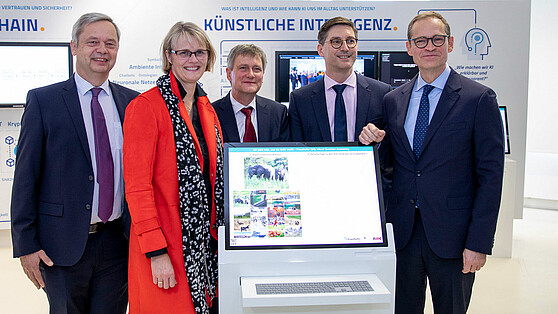 ©TU Berlin Pressestelle
Facts & Events“Berlin Institute for the Foundations of Learning and Data” (BIFOLD) is the new organisation that the Berlin Big Data Center (BBDC) and the Berlin…→
©TU Berlin Pressestelle
Facts & Events“Berlin Institute for the Foundations of Learning and Data” (BIFOLD) is the new organisation that the Berlin Big Data Center (BBDC) and the Berlin…→AI Beacon for Berlin: Millions in funding from the German Federal Government and State of Berlin
-
Facts & Events
 shutterstock © andersphoto
Facts & EventsBerliners win six high-ranking research awards: a total of five outstanding scientists received awards from the European Research Council. And Berlin…→
shutterstock © andersphoto
Facts & EventsBerliners win six high-ranking research awards: a total of five outstanding scientists received awards from the European Research Council. And Berlin…→Six awards announced for Berlin scientists
-
Facts & Events
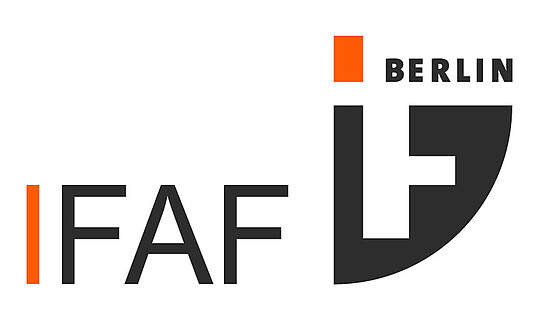 ©IFAF
Facts & Events22.11.2019 | Interdisciplinarity is a central characteristic of science and research in Berlin. This was most recently proven when the Berlin…→
©IFAF
Facts & Events22.11.2019 | Interdisciplinarity is a central characteristic of science and research in Berlin. This was most recently proven when the Berlin…→IFAF Berlin marks 10th anniversary
-
Facts & Events
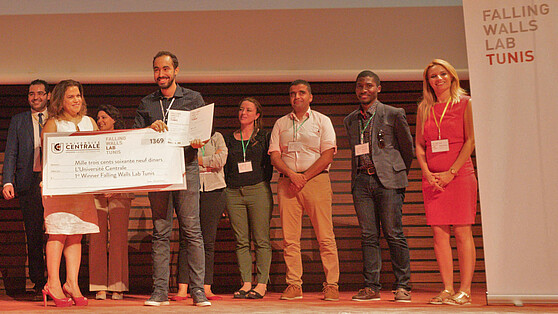 ©ADN Broadcast
Facts & Events31.10.2019 | For the second time, a Falling Walls Lab was held in Tunis, the capital of Tunisia, on 21 September 2019. The event was organized by…→
©ADN Broadcast
Facts & Events31.10.2019 | For the second time, a Falling Walls Lab was held in Tunis, the capital of Tunisia, on 21 September 2019. The event was organized by…→Brain City Ambassador organizes 2nd Falling Walls Lab in Tunis
-
Transfer – Stories
 ©ESCP EUROPE
Transfer – Stories29.10.2019 | Professor Andreas Kaplan is a Brain City Berlin ambassador and Rector of ESCP Europe Business School Berlin. The economist's research is…→
©ESCP EUROPE
Transfer – Stories29.10.2019 | Professor Andreas Kaplan is a Brain City Berlin ambassador and Rector of ESCP Europe Business School Berlin. The economist's research is…→"We have to be able to take everyone on the journey."
-
Facts & Events
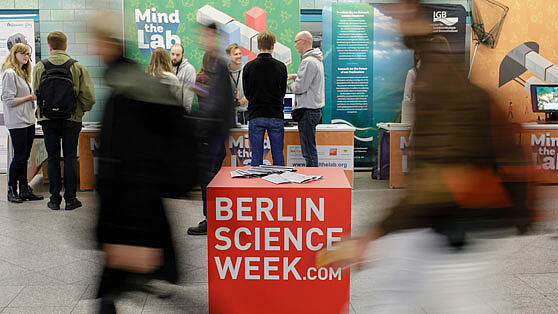 ©Berlin Science Week 2019
Facts & Events23.10.2019 | Over 350 top researchers from all over the world, more than 130 events, and a new format: the "Berlin Science Campus". Berlin Science…→
©Berlin Science Week 2019
Facts & Events23.10.2019 | Over 350 top researchers from all over the world, more than 130 events, and a new format: the "Berlin Science Campus". Berlin Science…→10 days dedicated to science: Berlin Science Week 2019
-
Facts & Events
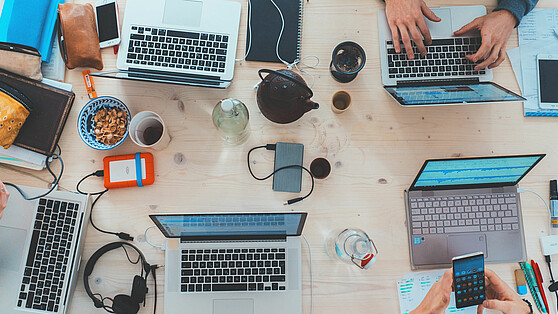 ©Marvin Meyer/Unsplash
Facts & EventsMore students than ever before are expected to be enrolled at the colleges and universities in the Brain City Berlin by the winter semester 2019/20.…→
©Marvin Meyer/Unsplash
Facts & EventsMore students than ever before are expected to be enrolled at the colleges and universities in the Brain City Berlin by the winter semester 2019/20.…→Start of the semester: 195,000 students expected | 17.10.2019
-
Facts & Events
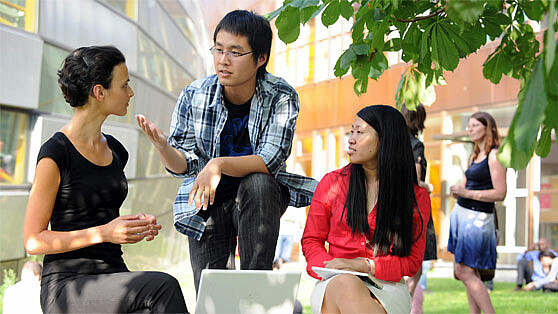 Fu Berlin / Peter Hirnsel
Facts & EventsBerlin is a cosmopolitan metropolis. People from more than 190 countries live and work in the city. More and more young, talented people who would…→
Fu Berlin / Peter Hirnsel
Facts & EventsBerlin is a cosmopolitan metropolis. People from more than 190 countries live and work in the city. More and more young, talented people who would…→Berlin universities are extraordinarily international | 10.10.2019
-
Facts & Events
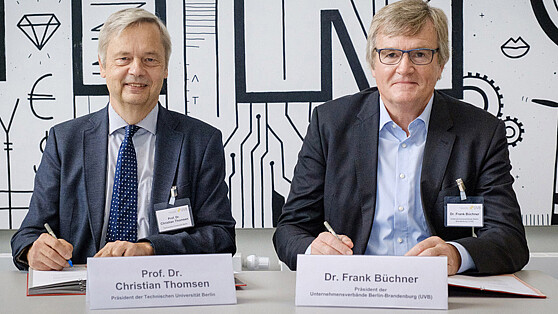 UVB 2019 / André Wagenzik
Facts & EventsBrain City Berlin is considered one of the leading locations in Germany working on artificial intelligence. Berlin science is an important driver of…→
UVB 2019 / André Wagenzik
Facts & EventsBrain City Berlin is considered one of the leading locations in Germany working on artificial intelligence. Berlin science is an important driver of…→Accelerating the digital transformation: TU Berlin and business associations intensify cooperation | 02.10.2019
-
Transfer – Stories
 Gudrun Piechotta-Henze
Transfer – StoriesIn time for the 2020/21 winter semester, ASH, the Alice Salomon University of Applied Sciences Berlin, is launching the first bachelor's degree to…→
Gudrun Piechotta-Henze
Transfer – StoriesIn time for the 2020/21 winter semester, ASH, the Alice Salomon University of Applied Sciences Berlin, is launching the first bachelor's degree to…→"We have to completely rethink nursing!" | 27.09.2019
-
Facts & Events
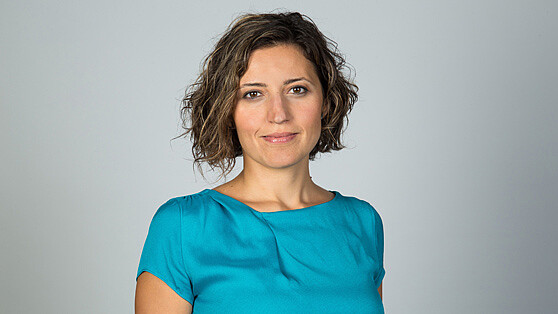 © ESMT Berlin/Fotografin: Annette Korrol
Facts & EventsAlso a great outcome for Brain City Berlin: Özlem Bedre-Defolie, Associate Professor of Economics at the ESMT Berlin international business school has…→
© ESMT Berlin/Fotografin: Annette Korrol
Facts & EventsAlso a great outcome for Brain City Berlin: Özlem Bedre-Defolie, Associate Professor of Economics at the ESMT Berlin international business school has…→On the trail of dominant platforms: ESMT Professor receives around 1.5 million euro in grant funding | 11.09.2019
-
Facts & Events
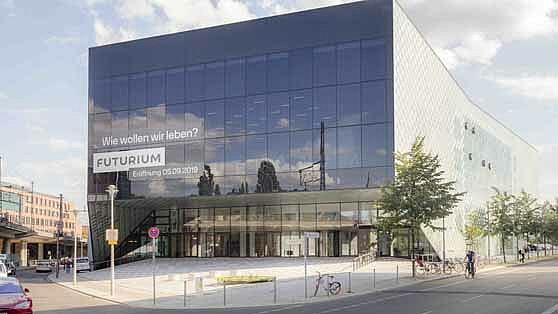 ©Futurium/David von Becker
Facts & EventsAlmost everyone's occupied with the future, because it's going to affect all of us. The Futurium, which opened yesterday in Brain City Berlin, invites…→
©Futurium/David von Becker
Facts & EventsAlmost everyone's occupied with the future, because it's going to affect all of us. The Futurium, which opened yesterday in Brain City Berlin, invites…→Creating public space for thinking in Brain City Berlin: the opening of the Futurium | 06.09.2019
-
Transfer – Stories
 ©Humboldt-Universität zu Berlin/Matthias Heyde
Transfer – StoriesThe courses offered by the HUWISU Summer University are varied and exciting, the target group is international: students from abroad who come to…→
©Humboldt-Universität zu Berlin/Matthias Heyde
Transfer – StoriesThe courses offered by the HUWISU Summer University are varied and exciting, the target group is international: students from abroad who come to…→When Berlin becomes one large seminar room ... | 15.08.2019
-
Transfer – Stories
![[Translate to English:] [Translate to English:]](/fileadmin/_processed_/9/d/csm_bwasihun-vdo_558x314_c0d384ce60.jpg) [Translate to English:]
Transfer – StoriesThe literary scholar Dr. Betiel Wasihun was traveling for science. After stops in Heidelberg, Yale, and Oxford, it brought her to Berlin two years…→
[Translate to English:]
Transfer – StoriesThe literary scholar Dr. Betiel Wasihun was traveling for science. After stops in Heidelberg, Yale, and Oxford, it brought her to Berlin two years…→“Berlin is a perfect location. Especially if you don’t want to pursue just a single avenue of scientific work.” | 12.08.2019
-
Transfer – Stories
![[Translate to English:] Berlin University Alliance/Matthias Heyde [Translate to English:]](/fileadmin/_processed_/5/a/csm_Berlin_University_Alliance_Matthias_Heyde-558x314_4bc591ca3c.jpg) [Translate to English:] Berlin University Alliance/Matthias Heyde
Transfer – StoriesTogether we are stronger. And also more successful. As the "Berlin University Alliance," the Technische Universität Berlin, the Freie Universität…→
[Translate to English:] Berlin University Alliance/Matthias Heyde
Transfer – StoriesTogether we are stronger. And also more successful. As the "Berlin University Alliance," the Technische Universität Berlin, the Freie Universität…→Congratulations: The “Berlin University Alliance“ receives funding of the Excellence Strategy |19.07.2019
-
Transfer – Stories
![[Translate to English:] David Ausserhofer/IGB [Translate to English:]](/fileadmin/_processed_/6/f/csm_Hupfer__Michael_____R__David_Ausserhofer_588x314_6fef164e57.jpg) [Translate to English:] David Ausserhofer/IGB
Transfer – StoriesBerlin is one of the most water-rich cities in Germany. But climate change does not stop at the Havel, Spree or Wannsee either. Dr. Michael Hupfer is…→
[Translate to English:] David Ausserhofer/IGB
Transfer – StoriesBerlin is one of the most water-rich cities in Germany. But climate change does not stop at the Havel, Spree or Wannsee either. Dr. Michael Hupfer is…→"We're trying to take a look into the future." | 04.07.2019
-
Facts & Events
![[Translate to English:] Peitz/Charité [Translate to English:]](/fileadmin/_processed_/e/8/csm_gabrysch-peitzsch-charite_558x314_5e9e7fccac.jpg) [Translate to English:] Peitz/Charité
Facts & EventsThe Brain City Berlin once again gets top-class new scientists: The medician and epidemiologist Prof. Dr. Dr. Sabine Gabrysch is the first female…→
[Translate to English:] Peitz/Charité
Facts & EventsThe Brain City Berlin once again gets top-class new scientists: The medician and epidemiologist Prof. Dr. Dr. Sabine Gabrysch is the first female…→First nationwide professorship for climate change and health in Berlin | 26.06.2019
-
Facts & Events
![[Translate to English:] Ottobock [Translate to English:]](/fileadmin/_processed_/a/6/csm_ottobock-filigranes_greifen_mit_bebionic_558x314_b7920c94de.jpg) [Translate to English:] Ottobock
Facts & EventsThe last school day in Berlin is over. Finally summer holidays! But some students might get bored while swimming all day in the Havel or the…→
[Translate to English:] Ottobock
Facts & EventsThe last school day in Berlin is over. Finally summer holidays! But some students might get bored while swimming all day in the Havel or the…→Clever throughout the summer holidays | 19.06.2019
-
Transfer – Stories
![[Translate to English:] Helena Lopes / Unsplash [Translate to English:]](/fileadmin/_processed_/b/6/csm_helena-lopes-1338810-unsplash_558x314_857802ad2f.jpg) [Translate to English:] Helena Lopes / Unsplash
Transfer – StoriesSend a digital lollipop or delicate fragrance notes via email or let the wind virtually blow against your face - research makes it possible. Learn…→
[Translate to English:] Helena Lopes / Unsplash
Transfer – StoriesSend a digital lollipop or delicate fragrance notes via email or let the wind virtually blow against your face - research makes it possible. Learn…→Experiencing the digital world with all senses | 18.06.2019
-
Facts & Events
![[Translate to English:] Florian Reimann [Translate to English:]](/fileadmin/_processed_/3/d/csm_CityLab_Nicolas_Zimmer_und_Michael_Mu___eller_58x314_d065119257.jpg) [Translate to English:] Florian Reimann
Facts & EventsThe future of the city: what could it look like? That's what Berlin's CityLAB is busy thinking about and researching. The Berlin experimental…→
[Translate to English:] Florian Reimann
Facts & EventsThe future of the city: what could it look like? That's what Berlin's CityLAB is busy thinking about and researching. The Berlin experimental…→Laboratory for the digitalization of Berlin: CityLAB opens | 13.06.2019
-
Transfer – Stories
![[Translate to English:] HZB/M. Setzpfandt [Translate to English:]](/fileadmin/_processed_/f/a/csm_LNDW_HZB_558x314_e1e3500ed5.jpg) [Translate to English:] HZB/M. Setzpfandt
Transfer – StoriesIn these times of fake news and pseudo-scientific publications, many people find it difficult to distinguish legitimate from dubious content. Only 54%…→
[Translate to English:] HZB/M. Setzpfandt
Transfer – StoriesIn these times of fake news and pseudo-scientific publications, many people find it difficult to distinguish legitimate from dubious content. Only 54%…→"Science needs to make us curious" | 11.06.2019
-
Transfer – Stories
![[Translate to English:] Tim Landgraf [Translate to English:]](/fileadmin/_processed_/0/7/csm_Car2CarEnergySharing_Tim_Landgraf_558x314_485bf716e9.jpg) [Translate to English:] Tim Landgraf
Transfer – StoriesBrain City Berlin is considered one of the leading locations in Germany working on artificial intelligence. About 30% of all German AI companies are…→
[Translate to English:] Tim Landgraf
Transfer – StoriesBrain City Berlin is considered one of the leading locations in Germany working on artificial intelligence. About 30% of all German AI companies are…→Fish, bees, and self-driving cars | 07.06.2019
-
Facts & Events
![[Translate to English:] chris knight/unsplash [Translate to English:]](/fileadmin/_processed_/0/4/csm_chris-knight-458508-unsplash_558x314_334166e690.jpg) [Translate to English:] chris knight/unsplash
Facts & EventsBerliners with foreign roots are extremely innovative. According to a short report by IW, the Cologne Institute for Economic Research, 16.1% of the…→
[Translate to English:] chris knight/unsplash
Facts & EventsBerliners with foreign roots are extremely innovative. According to a short report by IW, the Cologne Institute for Economic Research, 16.1% of the…→Berliners with a migration background especially inventive | 29.05.2019
-
Facts & Events
![[Translate to English:] TU Berlin/Dahl [Translate to English:]](/fileadmin/_processed_/5/1/csm_Freier_Dialog_TU_Berlin_Dahl_558x314_1b3036ca47.jpg) [Translate to English:] TU Berlin/Dahl
Facts & EventsBerlin is one of the most exciting centers for science and research in the world. Brain City Berlin is characterized by international and…→
[Translate to English:] TU Berlin/Dahl
Facts & EventsBerlin is one of the most exciting centers for science and research in the world. Brain City Berlin is characterized by international and…→Brain City Berlin: in free dialog with the world | 13.05.2019
-
Transfer – Stories
![[Translate to English:] [Translate to English:]](/fileadmin/_processed_/b/6/csm_Open-Access_Berlin-Partner_Wu__stenhagen_558x314_dd0c6e714d.jpg) [Translate to English:]
Transfer – StoriesScience and cultural heritage, freely accessible to everyone at any time on the Internet: The Open Access movement is promoting a paradigm shift in…→
[Translate to English:]
Transfer – StoriesScience and cultural heritage, freely accessible to everyone at any time on the Internet: The Open Access movement is promoting a paradigm shift in…→Knowledge for All - Open Access in Berlin | 28.03.2019
-
Facts & Events
![[Translate to English:] [Translate to English:]](/fileadmin/_processed_/3/e/csm_University-Ranking_Berlin-Partner_Scholvien_558x314_2e98a4d4aa.jpg) [Translate to English:]
Facts & EventsIn the globally recognized QS University Ranking, Berlin's universities performed very well in many disciplines. They are 30 times among the top 50…→
[Translate to English:]
Facts & EventsIn the globally recognized QS University Ranking, Berlin's universities performed very well in many disciplines. They are 30 times among the top 50…→QS World University Ranking 2019 - Berlin Universities are among the world's best in many disciplines | 21.03.2019
-
Transfer – Stories
![[Translate to English:] Thomas Rosenthal - Museum für Naturkunde Berlin [Translate to English:]](/fileadmin/_processed_/6/d/csm_Museum_fu___er_Naturkunde_Berlin_Thomas_Rosenthal_f11b8ba056.jpg) [Translate to English:] Thomas Rosenthal - Museum für Naturkunde Berlin
Transfer – Stories660 million euros in 10 years: The Natural History Museum Berlin - Museum für Naturkunde Berlin receives financial support for the further development…→
[Translate to English:] Thomas Rosenthal - Museum für Naturkunde Berlin
Transfer – Stories660 million euros in 10 years: The Natural History Museum Berlin - Museum für Naturkunde Berlin receives financial support for the further development…→Future of the Museum für Naturkunde Berlin | 14.01.2019
-
Transfer – Stories
![[Translate to English:] [Translate to English:]](/fileadmin/_processed_/f/c/csm_TU_Berlin_Cem_Avsar_558x314_4b07bcb055.jpg) [Translate to English:]
Transfer – StoriesSpace exploration is experiencing a revolution thanks to commercialization by such companies as Elon Musk's SpaceX. But did you know that more facets…→
[Translate to English:]
Transfer – StoriesSpace exploration is experiencing a revolution thanks to commercialization by such companies as Elon Musk's SpaceX. But did you know that more facets…→From Berlin to the moon: the space industry is booming in Berlin | 03.09.2018
-
Facts & Events
![[Translate to English:] the climate reality project/usplash [Translate to English:]](/fileadmin/_processed_/5/0/csm_the-climate-reality-projec-unsplash_558x314_9054a3fe7d.jpg) [Translate to English:] the climate reality project/usplash
Facts & EventsAlready for the third time the international conference "I, Scientist" takes place in the Brain City Berlin. From 20 to 21 September 2019, students…→
[Translate to English:] the climate reality project/usplash
Facts & EventsAlready for the third time the international conference "I, Scientist" takes place in the Brain City Berlin. From 20 to 21 September 2019, students…→Register now! "I, Scientist" - Gender Conference for Women Scientists | 25.07.2019